The Best International Feature Film category at the Academy Awards is a celebration of this global tapestry of cinematic artistry.
It honors the finest films from around the world, showcasing narratives that, though rooted in specific cultures, resonate universally.
Through this award, the Academy recognizes the importance of diverse voices and the rich tapestry of global cinema.
In this article, we journey across continents, exploring films that have not only represented their nations but have also touched hearts globally.
Join us as we jump into the masterpieces that have been bestowed with the prestigious title of Best International Feature Film by the Oscars, shedding light on their significance, artistry, and impact.
Academy Award for Best International Feature Film
Venture beyond borders with the “Academy Award for Best International Feature Film,” spotlighting cinema’s global gems.
Jump into the rich tapestry of stories that have charmed the world, transcending language and culture.
Celebrate the films that stand testament to the universal language of cinema, earning both global acclaim and Oscar gold.
1. Bicycle Thieves (1948)
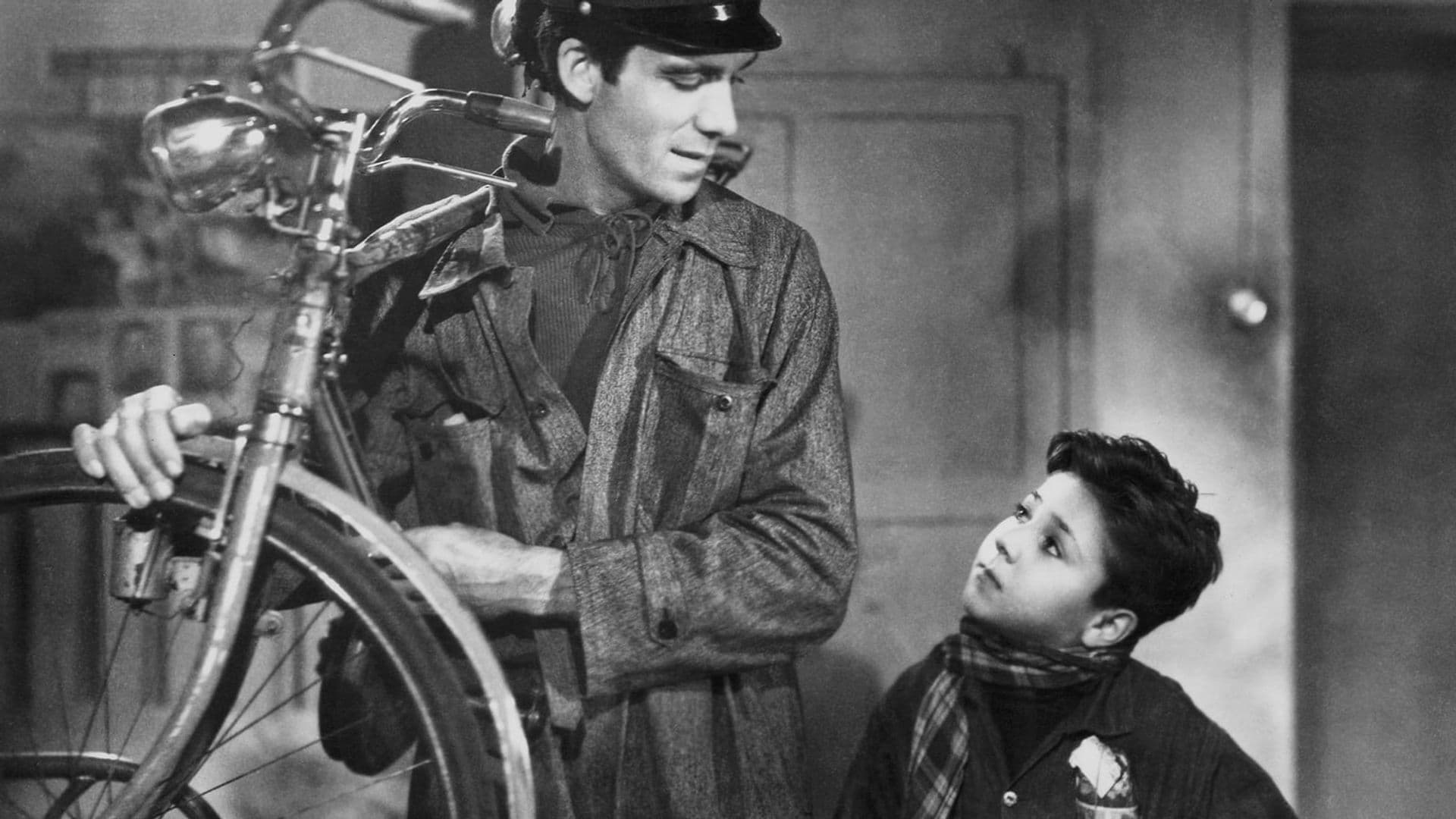
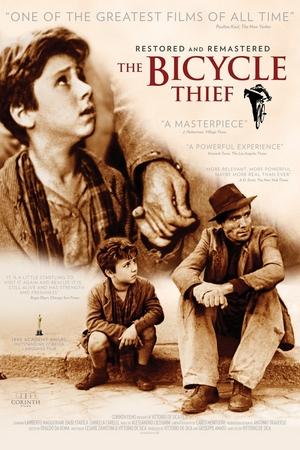
Bicycle Thieves
The Prize Picture They Want to Censor!
1948 • 1h 29min • ★ 8.175/10 • Italy
Directed by: Vittorio De Sica
Cast: Lamberto Maggiorani, Enzo Staiola, Lianella Carell, Gino Saltamerenda, Vittorio Antonucci
Unemployed Antonio is elated when he finally finds work hanging posters around war-torn Rome. However on his first day, his bicycle—essential to his work—gets stolen. His job is doomed unless he can find the thief. With the help of his son, Antonio combs the city, becoming desperate for justice.
“Bicycle Thieves,” also known as “Ladri di biciclette” in Italian, is a neorealist film released in 1948, directed by Vittorio De Sica. The movie is considered one of the masterpieces of Italian cinema and is often hailed as one of the greatest films ever made.
Set in post-World War II Rome, “Bicycle Thieves” tells the story of Antonio Ricci, a working-class man played by Lamberto Maggiorani, who finally finds employment as a poster-hanger. However, to perform his job, he needs a bicycle.
When his bicycle is stolen on his first day of work, Antonio and his young son Bruno (played by Enzo Staiola) embark on a desperate search through the city to recover the stolen bicycle.
The film captures the harsh realities of poverty, unemployment, and the struggles of ordinary people in post-war Italy.
It offers a realistic and empathetic portrayal of the characters, emphasizing their everyday struggles and the moral dilemmas they face in their pursuit of survival and dignity.
“Bicycle Thieves” is celebrated for its neorealist style, which emphasizes naturalistic acting, real locations, and a focus on the lives of ordinary people. The film’s use of non-professional actors adds to its authenticity and emotional impact.
Upon its release, “Bicycle Thieves” received critical acclaim and was embraced by audiences worldwide. It won numerous awards, including a special mention at the Cannes Film Festival and an honorary Academy Award for Best Foreign Language Film.
The film’s enduring legacy lies in its ability to capture the human condition, the disparities of social class, and the universal themes of family, loss, and the struggle for dignity.
“Bicycle Thieves” continues to be regarded as a seminal work in cinema history, inspiring generations of filmmakers and leaving a lasting impact on the art of storytelling onscreen.
2. The Secret in Their Eyes (2009)
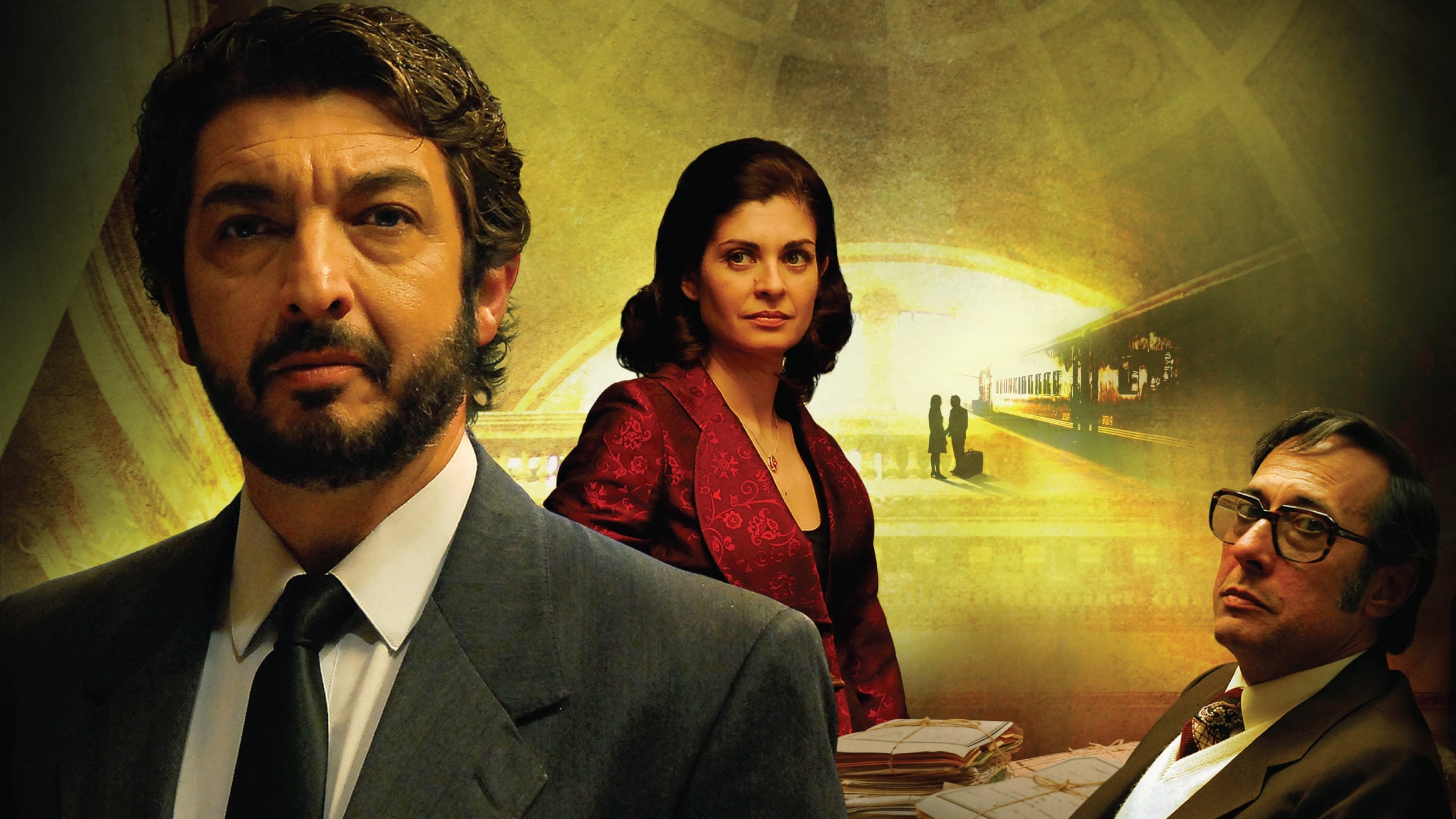
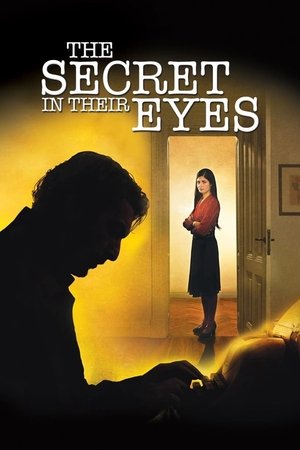
The Secret in Their Eyes
An unsolved crime. A love story. An unwritten ending.
2009 • 2h 10min • ★ 7.986/10 • Argentina
Directed by: Juan José Campanella
Cast: Ricardo Darín, Soledad Villamil, Pablo Rago, Javier Godino, Guillermo Francella
Hoping to put to rest years of unease concerning a past case, retired criminal investigator Benjamín begins writing a novel based on the unsolved mystery of a newlywed’s rape and murder. With the help of a former colleague, judge Irene, he attempts to make sense of the past.
“The Secret in Their Eyes” is a 2009 Argentine crime drama film directed by Juan José Campanella. The movie is based on the novel of the same name by Eduardo Sacheri and tells a gripping story that spans multiple decades.
“The Secret in Their Eyes” follows the journey of Benjamín Espósito, played by Ricardo Darín, a retired legal counselor who decides to write a novel based on a rape and murder case that deeply affected him and his colleagues in the past.
If you want to explore more about prestigious film awards, we have an extensive guide on awards and film festivals that have shaped cinema worldwide.
Through a series of flashbacks, the film explores the investigation, the personal relationships of the characters involved, and the lasting impact of the case on their lives.
The film weaves together elements of crime, mystery, romance, and political turmoil, capturing the complex emotions and moral dilemmas faced by its characters. It also examines themes of justice, love, memory, and the pursuit of truth.
“The Secret in Their Eyes” was highly acclaimed by both audiences and critics. It won numerous awards, including the Academy Award for Best Foreign Language Film in 2010, and became a box office success in Argentina and internationally.
The film is lauded for its engrossing storytelling, strong performances, and its ability to blend different genres seamlessly.
The performances in “The Secret in Their Eyes,” particularly by Ricardo Darín, Soledad Villamil, and Guillermo Francella, were praised for their depth and authenticity.
The film’s emotional impact and thought-provoking narrative continue to resonate with viewers, cementing its status as a standout in Argentine cinema and a must-watch for fans of crime dramas.
- The Secret in Their Eyes (2009) ( El secreto de sus ojos )
- The Secret in Their Eyes (2009)
- El secreto de sus ojos
- Ricardo Darin, Soledad Villamil, Carla Quevedo (Actors)
- Juan José Campanella (Director) - The Secret in Their Eyes (2009) ( El secreto de sus ojos )...
3. Tsotsi (2005)

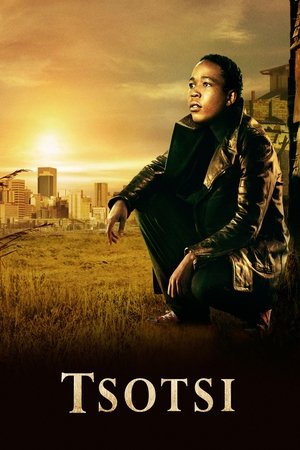
Tsotsi
In this world... Redemption comes just once.
2005 • 1h 34min • ★ 6.963/10 • South Africa
Directed by: Gavin Hood
Cast: Presley Chweneyagae, Jerry Mofokeng, Terry Pheto, Zenzo Ngqobe, Zola
A young South African boy from the Johannesburg ghetto named Tsotsi, meaning Gangster, leaves home as a child to get away from his helpless parents. Now a teenage thug, Tsotsi finds a baby in the back seat of a car he's just stolen. He decides that it is his responsibility to care for the infant and in the process learns that maybe the criminal life isn’t the best way.
“Tsotsi” is a South African drama film directed by Gavin Hood and released in 2005. The film is based on the novel of the same name by Athol Fugard and tells the story of a young Johannesburg gang leader who undergoes a transformative journey of redemption.
“Tsotsi” follows the eponymous character, played by Presley Chweneyagae, a hardened and violent young man living in a township on the outskirts of Johannesburg.
After a violent incident, Tsotsi finds himself responsible for a baby he inadvertently kidnaps during a carjacking. As he cares for the baby, Tsotsi begins to confront his own troubled past and grapple with his actions, leading him towards self-discovery and redemption.
The film explores themes of poverty, crime, forgiveness, and the search for humanity amidst a harsh and unforgiving environment.
It provides a raw and authentic portrayal of life in the townships of South Africa, highlighting the struggles faced by the marginalized and impoverished communities.
https://www.youtube.com/watch?v=LZKYiJMdw6I&pp=ygUVVHNvdHNpICgyMDA1KSB0cmFpbGVy
“Tsotsi” received critical acclaim and won numerous awards, including the Academy Award for Best Foreign Language Film. The film’s success brought international attention to South African cinema and showcased the talent of its cast and crew.
Presley Chweneyagae delivers a powerful performance as Tsotsi, capturing the character’s complexities and transformation with subtlety and intensity.
The film’s portrayal of Tsotsi’s personal journey resonated with audiences, highlighting the universal themes of redemption and the potential for change.
“Tsotsi” is celebrated for its emotional depth, compelling storytelling, and its ability to shed light on the social and economic challenges faced by marginalized communities in South Africa.
It remains a significant entry in South African cinema, highlighting the talent of its filmmakers and contributing to a broader understanding of the human condition.
- Amazon Prime Video (Video on Demand)
- Terry Pheto, Zola, Kenneth Nkosi (Actors)
- Gavin Hood (Director) - Gavin Hood (Writer) - Peter Fudakowski (Producer)
- English (Playback Language)
- English (Subtitle)
4. The Tin Drum (1979)
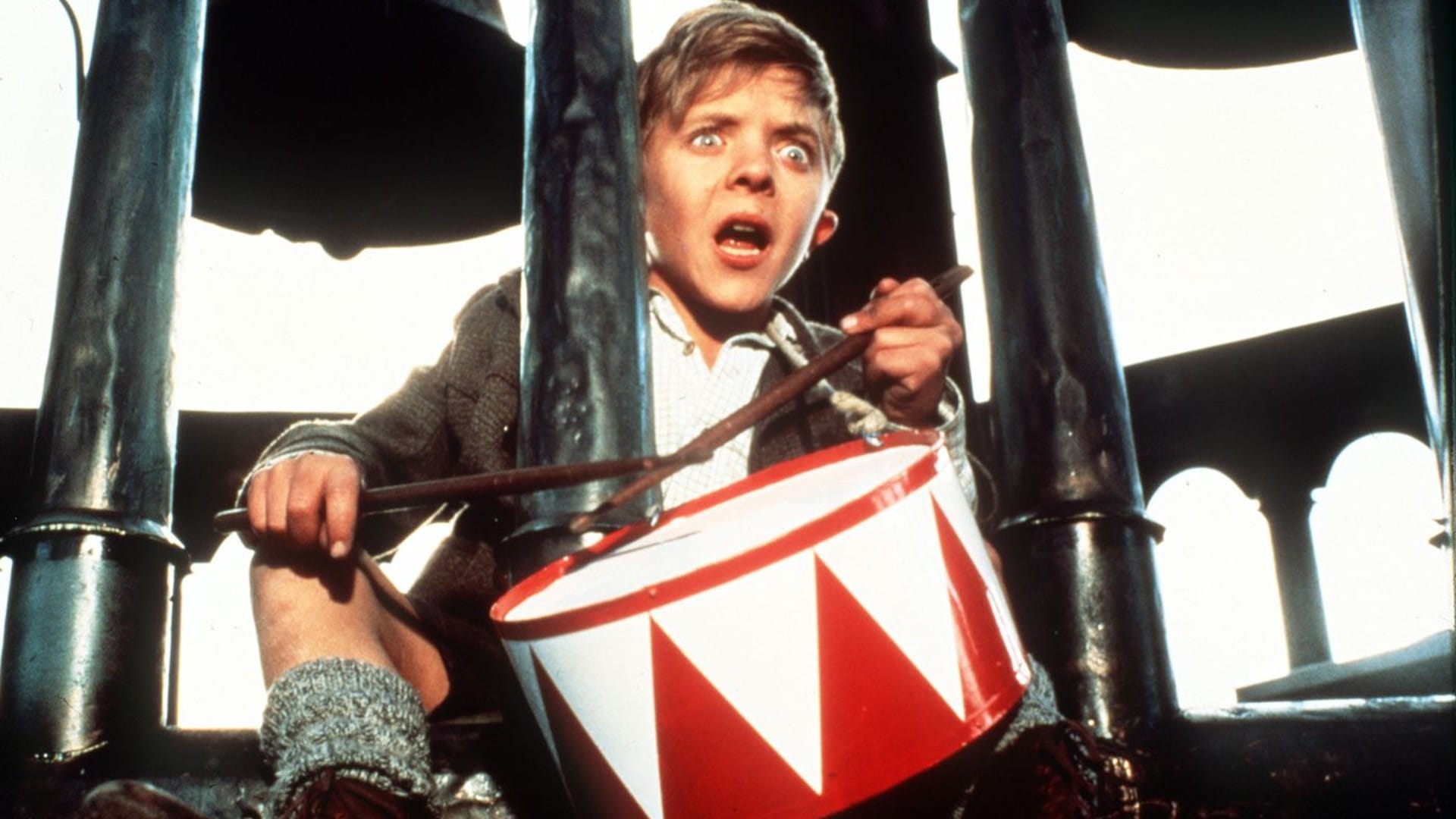

The Tin Drum
A savage, sweeping epic of society in chaos.
1979 • 2h 42min • ★ 6.936/10 • France
Directed by: Volker Schlöndorff
Cast: Mario Adorf, Angela Winkler, David Bennent, Katharina Thalbach, Daniel Olbrychski
Oskar Matzerath is a very unusual boy. Refusing to leave the womb until promised a tin drum by his mother, Agnes, Oskar is reluctant to enter a world he sees as filled with hypocrisy and injustice, and vows on his third birthday to never grow up. Miraculously, he gets his wish. As the Nazis rise to power in Danzig, Oskar wills himself to remain a child, beating his tin drum incessantly and screaming in protest at the chaos surrounding him.
“The Tin Drum” is a 1979 German drama film directed by Volker Schlöndorff, based on the novel of the same name by Günter Grass.
It is set in Danzig (now Gdańsk, Poland) before, during, and after World War II, and follows the life of Oskar Matzerath, a young boy who decides to stop growing at the age of three and communicates through the use of a tin drum.
The film explores Oskar’s unique perspective on the world as he witnesses the rise of Nazism and the horrors of war.
Through his drumming and his refusal to conform to societal expectations, Oskar becomes a symbol of resistance against the prevailing ideologies and a representation of the individual’s struggle for identity and autonomy.
“The Tin Drum” received critical acclaim for its provocative storytelling and visual style. It won the Palme d’Or, the highest prize awarded at the Cannes Film Festival, and the Academy Award for Best Foreign Language Film, among other accolades.
The film is known for its powerful performances, particularly by David Bennent as Oskar Matzerath, who delivers a mesmerizing portrayal of the complex and enigmatic character.
The film tackles weighty themes such as the nature of power, the impact of historical events on individuals, and the interplay between personal and political identities.
It employs surreal and allegorical elements, blurring the boundaries between reality and fantasy, and creating a thought-provoking narrative that challenges viewers to reflect on the human condition and the forces that shape society.
“The Tin Drum” is notable for its daring and controversial content, including explicit scenes and depictions of violence, which contributed to its divisive reception.
However, it remains a significant work of German cinema, known for its artistic merits and its exploration of complex historical and psychological themes.
Overall, “The Tin Drum” is a visually striking and thematically rich film that delves into the complexities of human existence and the impact of historical events on individuals.
Its provocative nature and powerful performances have solidified its place as an influential work in world cinema.
5. Amarcord (1973)
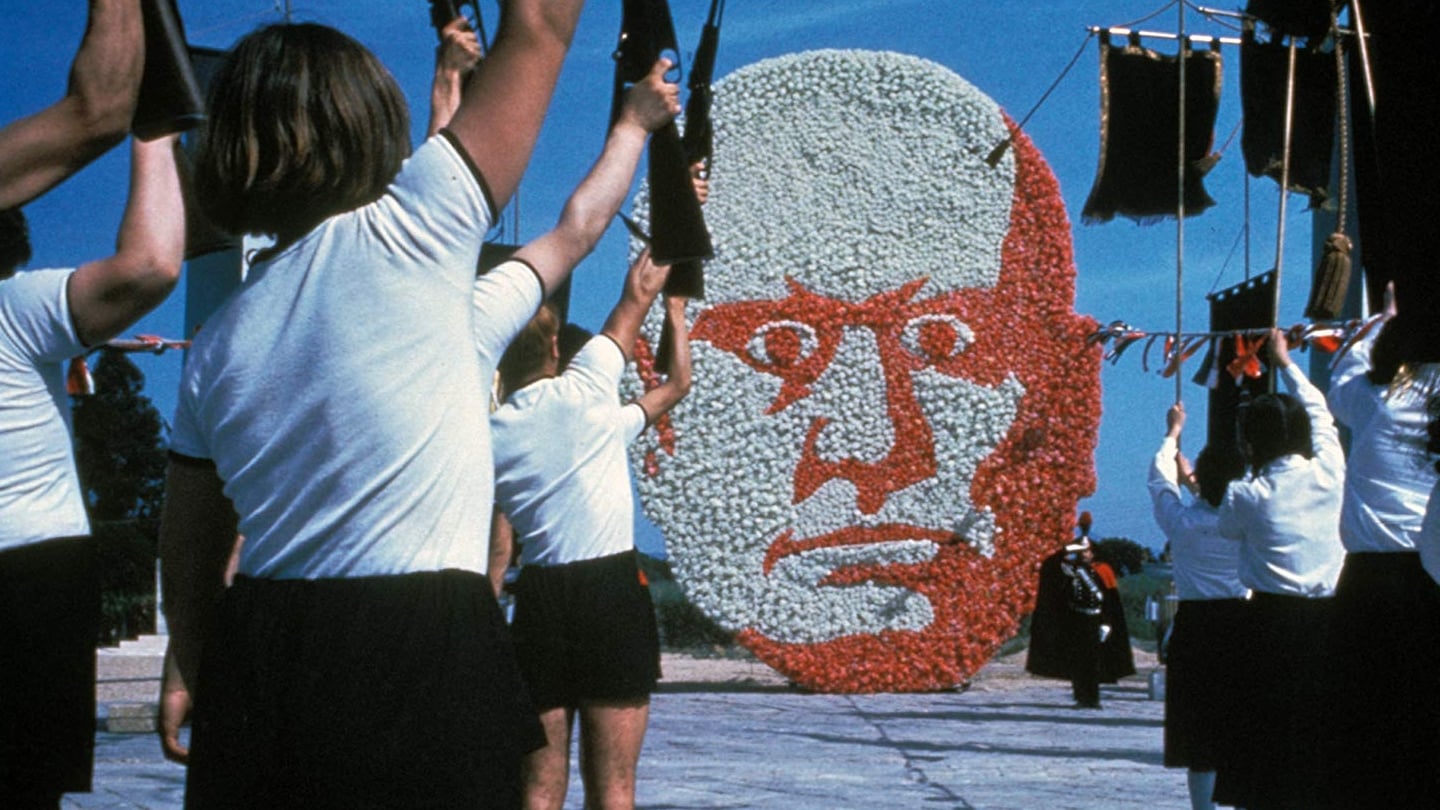
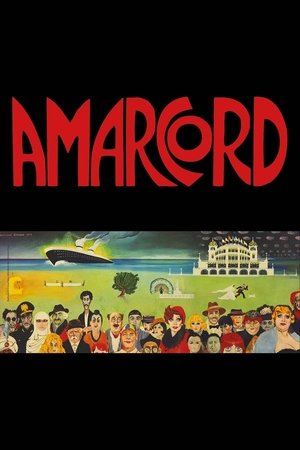
Amarcord
The Fantastic World of Fellini!
1973 • 2h 3min • ★ 7.904/10 • Italy
Directed by: Federico Fellini
Cast: Pupella Maggio, Armando Brancia, Magali Noël, Ciccio Ingrassia, Nando Orfei
In an Italian seaside town, young Titta gets into trouble with his friends and watches various local eccentrics as they engage in often absurd behavior. Frequently clashing with his stern father and defended by his doting mother, Titta witnesses the actions of a wide range of characters, from his extended family to Fascist loyalists to sensual women, with certain moments shifting into fantastical scenarios.
“Amarcord” is a 1973 Italian comedy-drama film directed by Federico Fellini. The title “Amarcord” is a wordplay in the Romagnolo dialect, roughly translating to “I remember” in Italian.
The film is a semi-autobiographical depiction of Fellini’s childhood and adolescence in the coastal town of Rimini during the 1930s.
In “Amarcord,” Fellini creates a vivid and nostalgic portrait of the town and its eccentric inhabitants, capturing the spirit and atmosphere of the time with both humor and poignancy.
The film is episodic in structure, presenting a series of vignettes and characters that come together to form a collage of memories.
Through its various vignettes, “Amarcord” explores themes of youth, desire, politics, and the complexities of human relationships. It reflects on the societal changes and political climate of the era, including the rise of fascism and its impact on the community.
The film’s visual style is distinctive, with Fellini’s signature dreamlike and surrealistic touches. The colorful and extravagant cinematography, coupled with Nino Rota’s evocative musical score, contributes to the film’s rich and immersive atmosphere.
“Amarcord” received critical acclaim upon its release and won the Academy Award for Best Foreign Language Film. It is celebrated for its evocative storytelling, rich characterizations, and Fellini’s ability to capture the essence of memory and nostalgia.
The film is often regarded as one of Fellini’s masterpieces and a testament to his unique artistic vision.
“Amarcord” continues to be revered for its poetic and visually stunning depiction of a bygone era, offering a deeply personal and bittersweet exploration of memory, identity, and the universal experiences of youth.
- Amarcord (UK)
- Amarcord (UK)
- Pupella Maggio, Magali Noël, Armando Brancia (Actors)
- Federico Fellini (Director) - Amarcord (UK) (Producer)
- English, French, Italian, German, Spanish (Subtitles)
6. Mon Oncle (1958)
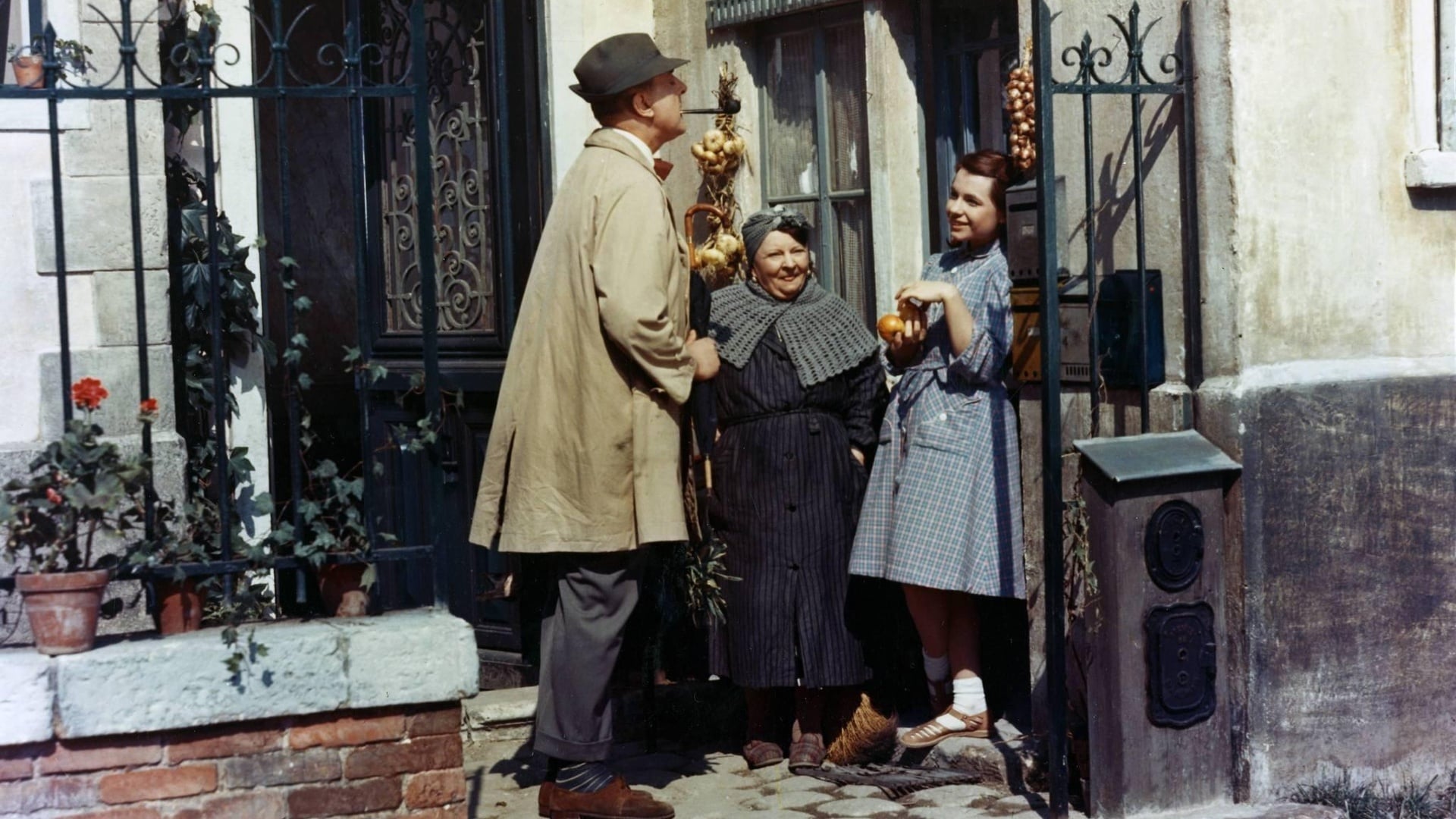
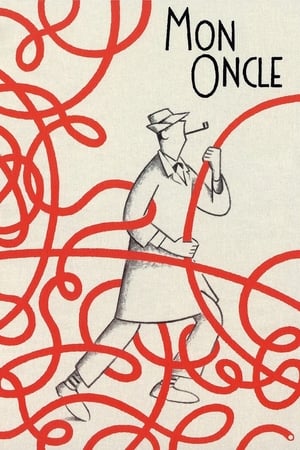
Mon Oncle
Mr Hulot takes a precious, playful ... and purely premeditated look at modern times ...
1958 • 1h 58min • ★ 7.4/10 • France
Directed by: Jacques Tati
Cast: Jacques Tati, Jean-Pierre Zola, Adrienne Servantie, Lucien Frégis, Betty Schneider
Genial, bumbling Monsieur Hulot loves his top-floor apartment in a grimy corner of the city, and cannot fathom why his sister's family has moved to the suburbs. Their house is an ultra-modern nightmare, which Hulot only visits for the sake of stealing away his rambunctious young nephew. Hulot's sister, however, wants to win him over to her new way of life, and conspires to set him up with a wife and job.
“Mon Oncle” is a French comedy film released in 1958, directed by Jacques Tati. It is known for its satirical depiction of modernization and the clash between traditional and modern lifestyles.
The film follows the character of Monsieur Hulot, played by Jacques Tati himself, a well-meaning but clumsy and old-fashioned man who struggles to fit into the rapidly changing technological world.
Monsieur Hulot visits his sister’s ultra-modern home, filled with gadgets and automation, and the film humorously explores the absurdities and dehumanizing aspects of modern life.
“Mon Oncle” uses visual comedy and physical gags to highlight the contrast between the sterile and mechanical modern world and the more organic and humanistic way of life that Monsieur Hulot represents.
The film satirizes the obsession with material possessions and the loss of human connection in an increasingly mechanized society.
The film received critical acclaim and won the Academy Award for Best Foreign Language Film. It is regarded as one of Jacques Tati’s most significant works, showcasing his unique comedic style and his keen observations of society.
“Mon Oncle” is known for its meticulous set design and attention to detail, with Tati’s use of visual comedy providing a playful commentary on modernization.
The film’s lack of dialogue and reliance on visual storytelling allows for a universal appeal, transcending language barriers.
Through its humor and satire, “Mon Oncle” offers a critique of the dehumanizing effects of modernization while celebrating the simple joys and interactions of everyday life. It invites viewers to reflect on the balance between progress and the preservation of human values.
Overall, “Mon Oncle” is a charming and insightful comedy that explores the clash between tradition and modernity with wit and visual flair.
It continues to be celebrated as a classic of French cinema, showcasing Jacques Tati’s unique talent and his ability to find humor in the quirks and contradictions of contemporary society.
- Jacques Tati, Jean-Pierre Zola (Actors)
- Jacques Tati (Director)
- English (Subtitle)
- Audience Rating: Unrated (Not Rated)
7. The Virgin Spring (1960)
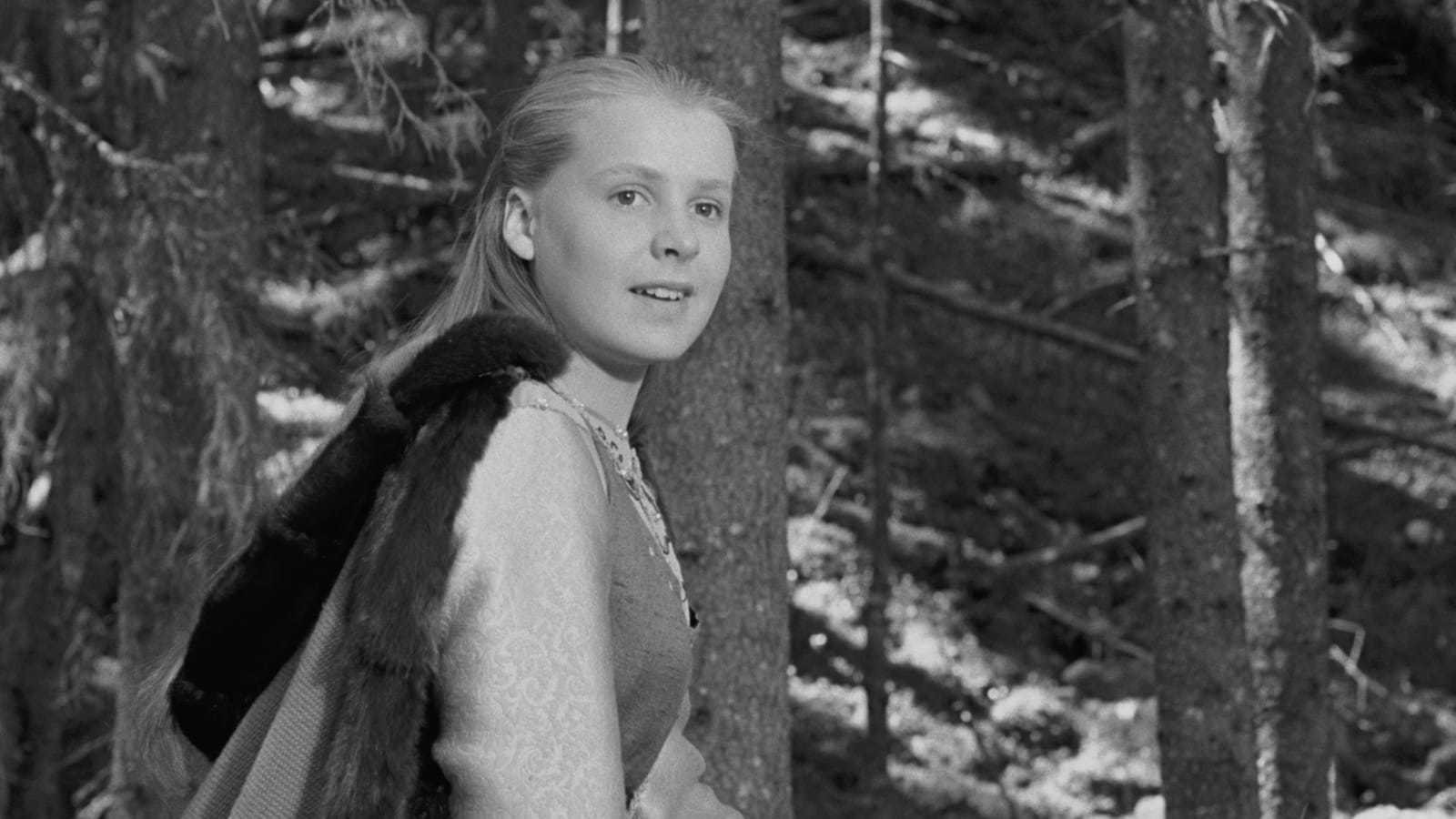
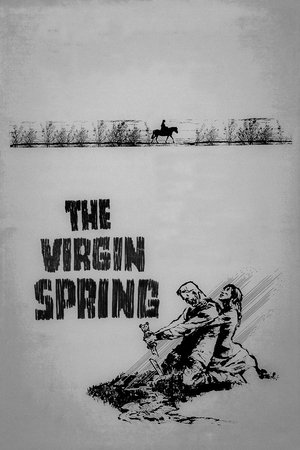
The Virgin Spring
Ravished innocence... brings terrible revenge!
1960 • 1h 30min • ★ 7.849/10 • Sweden
Directed by: Ingmar Bergman
Cast: Max von Sydow, Birgitta Valberg, Gunnel Lindblom, Birgitta Pettersson, Axel Düberg
Devout Christians Töre and Märeta send their only daughter, the virginal Karin, and their foster daughter, the unrepentant Ingeri, to deliver candles to a distant church. On their way through the woods, the girls encounter a group of savage goat herders who brutally rape and murder Karin as Ingeri remains hidden. When the killers unwittingly seek refuge in the farmhouse of Töre and Märeta, Töre plots a fitting revenge.
“The Virgin Spring” is a Swedish drama film directed by Ingmar Bergman, released in 1960. The film is set in medieval Sweden and tells the story of a young girl named Karin, played by Birgitta Pettersson, who is raped and murdered on her way to church.
The film explores themes of faith, revenge, and the nature of evil. After the tragic event, Karin’s father, played by Max von Sydow, seeks revenge against the perpetrators, leading to a cycle of violence and retribution.
“The Virgin Spring” delves into the moral and existential dilemmas faced by its characters, examining the complex relationship between justice, mercy, and faith. The film presents a stark and austere visual style, emphasizing the somber and introspective nature of the narrative.
https://www.youtube.com/watch?v=IBf4PnJGkZk&pp=ygUgVGhlIFZpcmdpbiBTcHJpbmcgKDE5NjApIHRyYWlsZXI%3D
Ingmar Bergman’s direction, combined with the evocative black-and-white cinematography by Sven Nykvist, creates a haunting and contemplative atmosphere.
The film’s exploration of moral ambiguity and the human capacity for both cruelty and redemption is characteristic of Bergman’s body of work.
“The Virgin Spring” received critical acclaim upon its release and won the Academy Award for Best Foreign Language Film in 1961. It is regarded as one of Bergman’s masterpieces, showcasing his ability to explore profound existential questions through the medium of cinema.
The film’s impact extended beyond its initial release, influencing subsequent works and filmmakers. It remains a significant entry in Ingmar Bergman’s filmography and a notable contribution to world cinema.
Please note that “The Virgin Spring” contains mature themes and depicts scenes of violence, which may not be suitable for all audiences.
- Amazon Prime Video (Video on Demand)
- Max von Sydow, Birgitta Valberg, Gunnel Lindblom (Actors)
- Ingmar Bergman (Director) - Ulla Isaksson (Writer) - Ingmar Bergman (Producer)
- (Playback Language)
- Audience Rating: NR (Not Rated)
8. Amour (2012)
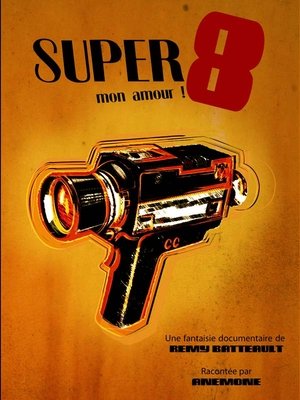
Super 8 mon amour
2012 • 0h 52min • France
Directed by: Rémy Batteault
Cast: Anémone
The encounters between the almost disappearance of the Super 8 in the 90's and the ones who still love working on it.
“Amour” is a French-language drama film released in 2012, written and directed by Michael Haneke. The movie explores the profound emotional and physical challenges faced by an elderly couple as they navigate the complexities of aging and illness.
The film primarily revolves around Anne and Georges, played by Emmanuelle Riva and Jean-Louis Trintignant, respectively.
They are retired music teachers in their 80s who have shared a lifetime of love and companionship. When Anne’s health deteriorates following a stroke, their lives are profoundly affected as Georges becomes her primary caretaker.
“Amour” delves into themes of love, devotion, dignity, and the inevitable nature of mortality. It offers an intimate and unflinching portrayal of the physical and emotional toll of aging, as well as the complexities of the caregiver-patient dynamic.
The film received widespread critical acclaim and was a major success, earning numerous accolades.
It won the Palme d’Or at the 2012 Cannes Film Festival and received five Academy Award nominations, including Best Picture, Best Director, and Best Actress for Emmanuelle Riva, who became the oldest nominee in that category.
“Amour” is praised for its restrained and sensitive approach to its subject matter, showcasing Michael Haneke’s meticulous direction and the outstanding performances of its lead actors.
It tackles profound human emotions with honesty and authenticity, offering a deeply affecting portrayal of love, loss, and the complexities of aging.
The film serves as a poignant reminder of the fragility of life and the enduring power of love in the face of adversity. It is a thought-provoking exploration of the human condition and the challenges faced by individuals and relationships as they confront mortality.
9. Crouching Tiger, Hidden Dragon (2000)
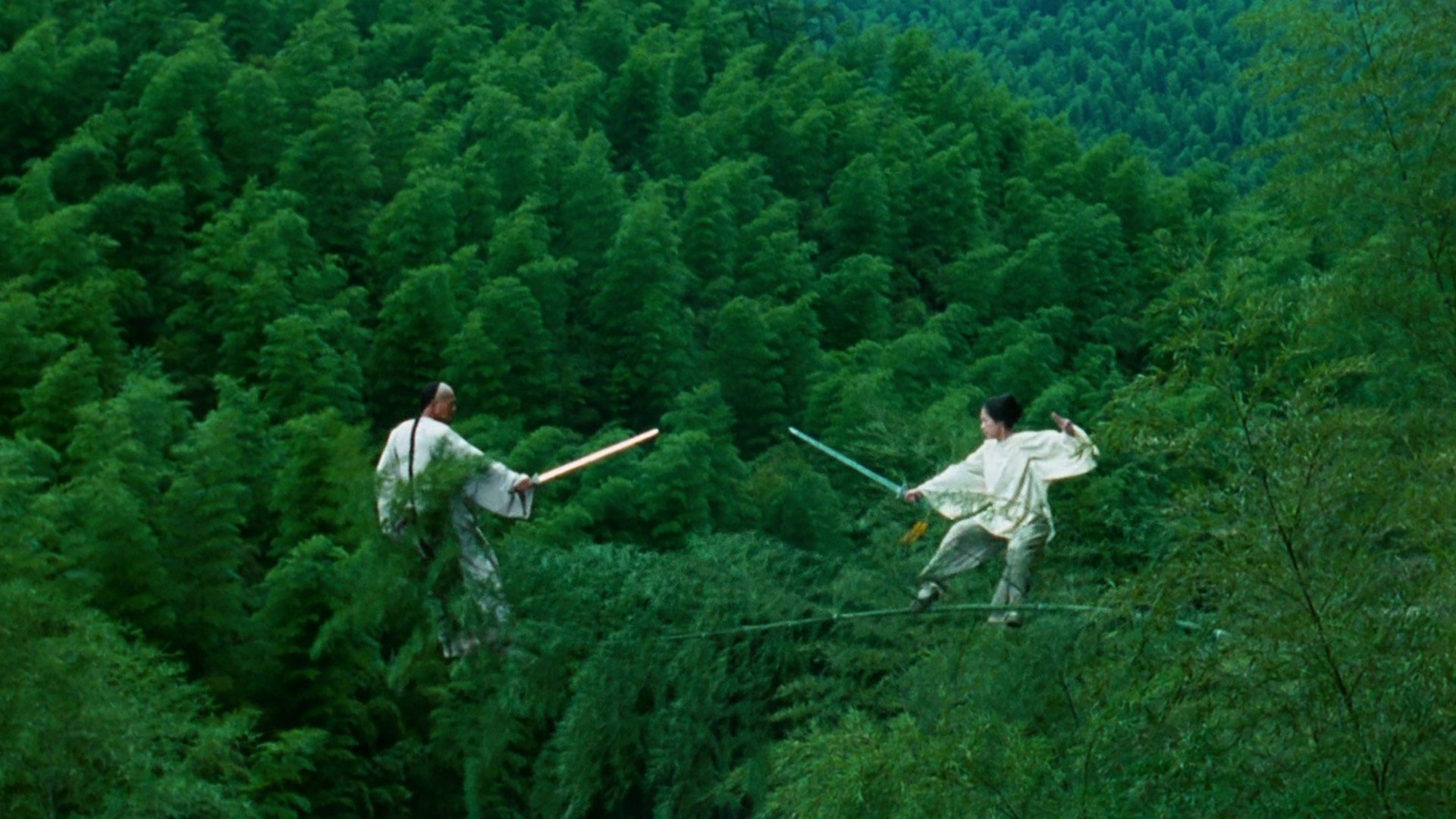
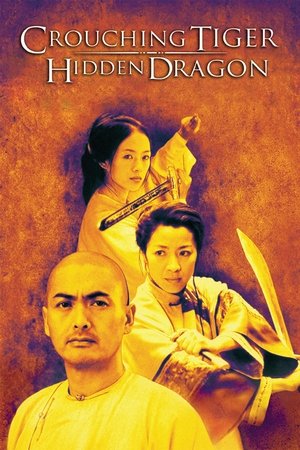
Crouching Tiger, Hidden Dragon
A timeless story of strength, secrets and two warriors who would never surrender.
2000 • 2h 0min • ★ 7.439/10 • Hong Kong
Directed by: Ang Lee
Cast: Chow Yun-Fat, Michelle Yeoh, Zhang Ziyi, Chang Chen, Lung Sihung
Two warriors in pursuit of a stolen sword and a notorious fugitive are led to an impetuous, physically-skilled, teenage nobleman's daughter, who is at a crossroads in her life.
“Crouching Tiger, Hidden Dragon” is a 2000 wuxia film directed by Ang Lee. The movie is based on the novel of the same name by Wang Dulu and is set in 19th-century China during the Qing dynasty.
The film tells the story of Li Mu Bai, played by Chow Yun-fat, a renowned warrior who decides to retire from the martial arts world.
Li Mu Bai entrusts his treasured sword, the Green Destiny, to Yu Shu Lien, portrayed by Michelle Yeoh, a skilled warrior and close friend.
However, the Green Destiny is stolen, and Li Mu Bai and Yu Shu Lien embark on a journey to recover it, encountering various challenges and uncovering hidden desires and emotions along the way.
“Crouching Tiger, Hidden Dragon” is known for its visually stunning action sequences and its poetic storytelling. The film blends elements of romance, drama, and martial arts, exploring themes of love, honor, and the conflict between personal desires and societal expectations.
The film’s choreographed fight scenes, featuring characters seemingly defying gravity as they engage in gravity-defying combat, captivated audiences and received critical acclaim.
The performances of the cast, including Chow Yun-fat, Michelle Yeoh, Zhang Ziyi, and Chang Chen, were widely praised for their depth and skill.
“Crouching Tiger, Hidden Dragon” achieved both critical and commercial success, becoming an international sensation and winning numerous awards, including four Academy Awards.
It is credited with popularizing wuxia films to a global audience and showcasing the beauty and artistry of Chinese martial arts cinema.
The film’s rich storytelling, breathtaking cinematography, and emotional resonance have made it a beloved classic, solidifying its place as one of the most influential and celebrated films in the wuxia genre.
No products found.
”}” data-sheets-userformat=”{“2″:513,”3”:{“1″:0},”12″:0}”>”]
10. Parasite (2019)
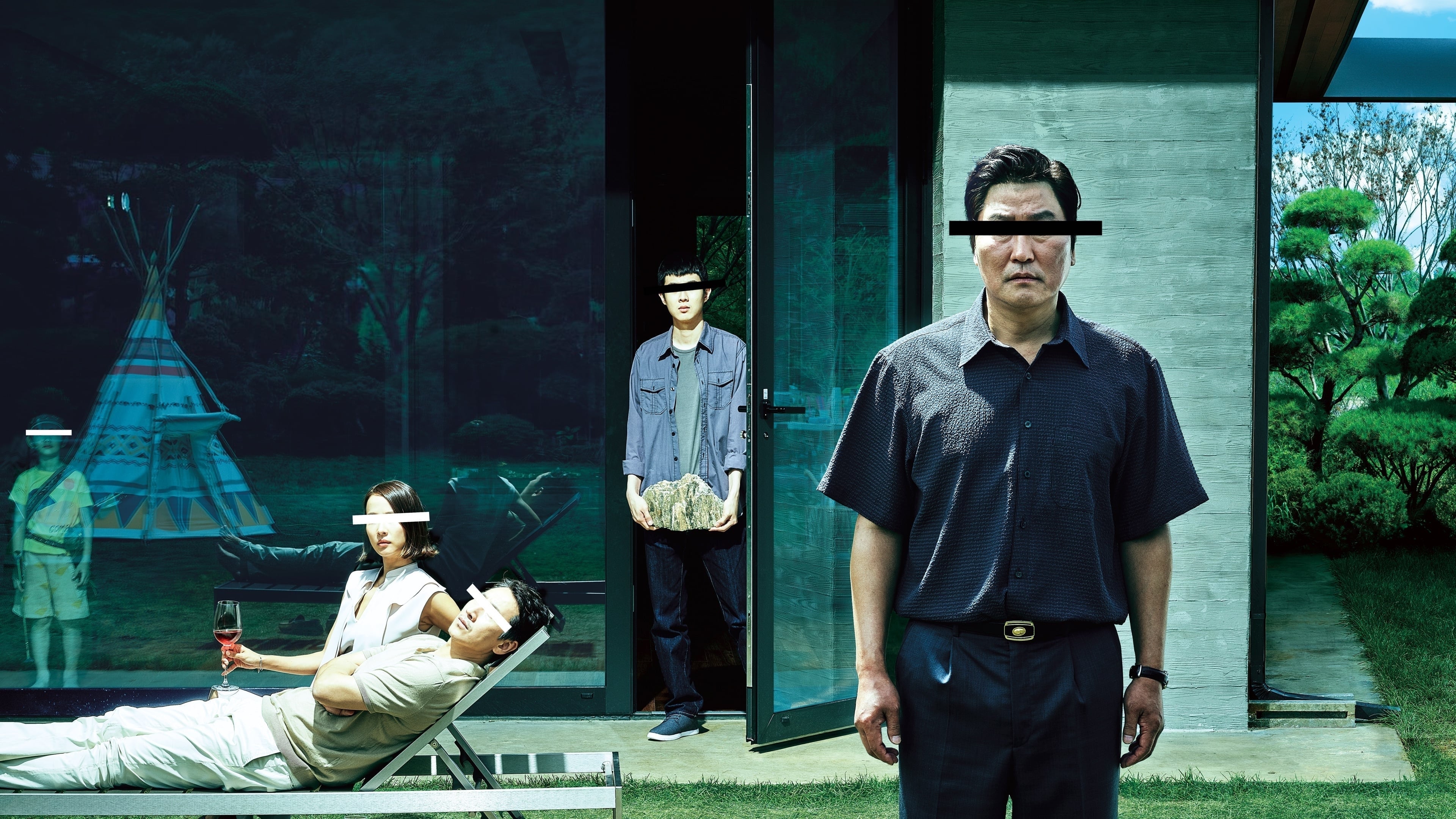

Parasite
Act like you own the place.
2019 • 2h 13min • ★ 8.499/10 • South Korea
Directed by: Bong Joon Ho
Cast: Song Kang-ho, Lee Sun-kyun, Cho Yeo-jeong, Choi Woo-shik, Park So-dam
All unemployed, Ki-taek's family takes peculiar interest in the wealthy and glamorous Parks for their livelihood until they get entangled in an unexpected incident.
“Parasite” is a South Korean black comedy thriller film directed by Bong Joon-ho and released in 2019. The film gained international acclaim and achieved significant commercial success, becoming the first South Korean film to win the Palme d’Or at the Cannes Film Festival and winning four Academy Awards, including Best Picture, Best Director, Best Original Screenplay, and Best International Feature Film.
“Parasite” tells the story of the impoverished Kim family, who scheme their way into the lives of the wealthy Park family by infiltrating their household as employees.
As the Kims become entangled in the lives of the Parks, the film explores themes of social inequality, class dynamics, and the consequences of greed and deception.
The film features a talented ensemble cast, including Song Kang-ho, Lee Sun-kyun, Cho Yeo-jeong, Choi Woo-shik, and Park So-dam, who deliver exceptional performances that capture the complexities of their characters.
“Parasite” is lauded for its sharp social commentary, dark humor, and masterful storytelling.
Bong Joon-ho’s direction and screenplay highlight the stark disparities between the rich and the poor, offering a thought-provoking examination of class struggle and the impact it has on individuals and society.
The film’s cinematography, production design, and editing contribute to its atmospheric and visually captivating presentation. It skillfully balances tension, suspense, and moments of levity, creating an immersive and engaging cinematic experience.
“Parasite” broke barriers by becoming one of the most successful and critically acclaimed South Korean films to date. Its international recognition brought greater visibility to South Korean cinema and sparked conversations about social inequality and class divisions on a global scale.
“Parasite” is celebrated for its originality, craftsmanship, and its ability to resonate with audiences worldwide. It stands as a testament to the power of storytelling and the impact of cinema in addressing important social issues.
- Amazon Prime Video (Video on Demand)
- Kang-ho Song (Actor)
- Bong Joon Ho (Director) - Joon Ho Bong (Writer) - Sin Ae Kwak (Producer)
- (Playback Language)
- Audience Rating: R (Restricted)
11. Fanny and Alexander (1982)

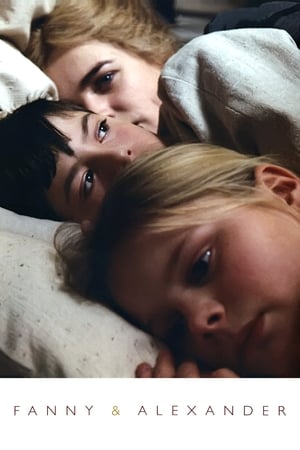
Fanny and Alexander
1982 • 3h 8min • ★ 7.8/10 • Sweden
Directed by: Ingmar Bergman
Cast: Pernilla Allwin, Bertil Guve, Jan Malmsjö, Börje Ahlstedt, Anna Bergman
As children in the loving Ekdahl family, Fanny and Alexander enjoy a happy life with their parents, who run a theater company. After their father dies unexpectedly, however, the siblings end up in a joyless home when their mother, Emilie, marries a stern bishop. The bleak situation gradually grows worse as the bishop becomes more controlling, but dedicated relatives make a valiant attempt to aid Emilie, Fanny and Alexander.
“Fanny and Alexander” is a 1982 Swedish drama film written and directed by Ingmar Bergman. It is considered one of Bergman’s masterpieces and is widely regarded as one of the greatest films ever made.
The film tells the story of the Ekdahl family, particularly the experiences of the siblings Fanny and Alexander, as they navigate their lives in Uppsala, Sweden, during the early 20th century.
“Fanny and Alexander” is a deeply personal and emotionally rich exploration of family, childhood, and the power of imagination.
It delves into the complex dynamics within the Ekdahl family, capturing their joys, struggles, and the influence of their matriarch, Helena Ekdahl, portrayed by Gunn Wållgren.
The film is renowned for its exquisite craftsmanship, with stunning cinematography by Sven Nykvist and meticulous production design that brings the world of Fanny and Alexander to life.
The blending of reality and fantasy, present throughout the film, adds an ethereal quality to the narrative and invites viewers into the imaginative realm of the children.
“Fanny and Alexander” showcases Bergman’s masterful storytelling and his ability to delve into profound themes with depth and nuance. It touches upon the power of art and theater, the dynamics of family relationships, and the exploration of spirituality and mortality.
Through the eyes of Fanny and Alexander, the film presents a poignant and often bittersweet depiction of childhood, capturing both its innocence and the challenges it presents.
The performances in “Fanny and Alexander” are outstanding, with stellar portrayals from the ensemble cast, including Pernilla Allwin and Bertil Guve as Fanny and Alexander, respectively, and notable appearances by Max von Sydow and Harriet Andersson.
The film received critical acclaim upon its release and won four Academy Awards, including Best Foreign Language Film, Best Cinematography, Best Art Direction, and Best Costume Design.
It solidified Bergman’s status as a master filmmaker and is considered one of the highlights of his prolific career.
“Fanny and Alexander” is a cinematic masterpiece that blends realism and fantasy, capturing the essence of human experiences and the power of storytelling.
Its rich tapestry of characters, sumptuous visuals, and thought-provoking themes have made it an enduring classic that continues to resonate with audiences around the world.
- Ingmar Bergman (Director)
- English (Subtitle)
- Swedish (Publication Language)
- Audience Rating: R (Restricted)
12. Life is Beautiful (1997)
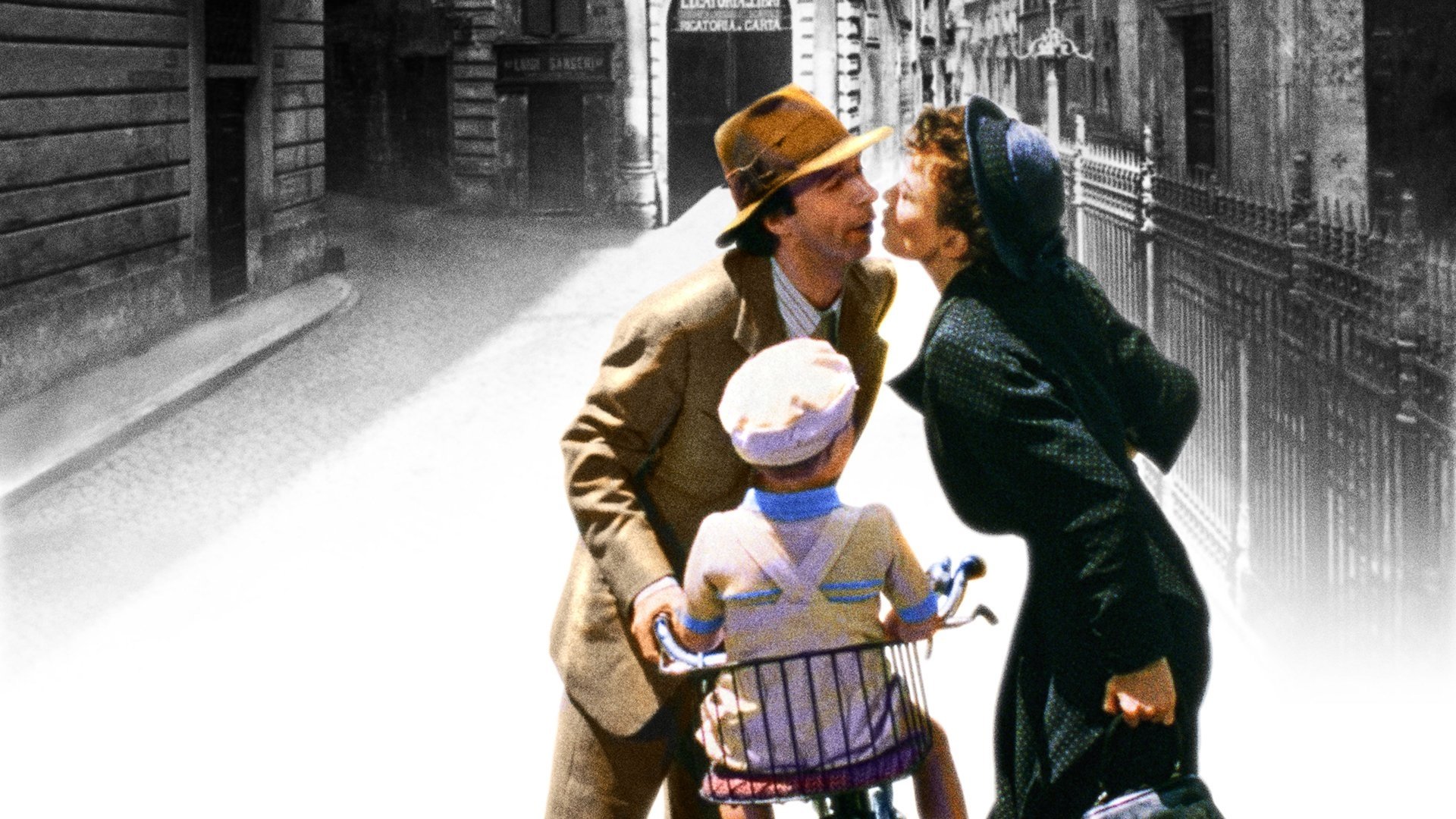
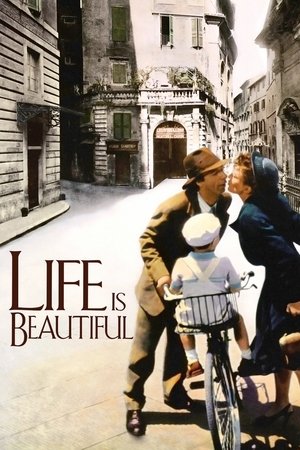
Life Is Beautiful
An unforgettable fable that proves love, family and imagination conquer all.
1997 • 1h 56min • ★ 8.445/10 • Italy
Directed by: Roberto Benigni
Cast: Roberto Benigni, Nicoletta Braschi, Giorgio Cantarini, Giustino Durano, Sergio Bini Bustric
A touching story of an Italian book seller of Jewish ancestry who lives in his own little fairy tale. His creative and happy life would come to an abrupt halt when his entire family is deported to a concentration camp during World War II. While locked up he tries to convince his son that the whole thing is just a game.
“Life is Beautiful” (original title: “La vita è bella”) is a 1997 Italian comedy-drama film directed by and starring Roberto Benigni.
The film is set in Italy during World War II and tells the story of a Jewish-Italian man named Guido Orefice, played by Roberto Benigni, who uses his imagination and humor to protect his son from the horrors of the Holocaust.
“Life is Beautiful” is divided into two parts. The first part portrays Guido’s charming and comedic courtship of his wife Dora, played by Nicoletta Braschi.
The second part focuses on the family’s experiences in a concentration camp, where Guido and his young son Giosué, portrayed by Giorgio Cantarini, are interned.
Despite the grim setting, Guido creates an elaborate game for his son, convincing him that their time in the camp is merely an elaborate competition to win points. Guido’s relentless optimism and humor serve as a shield to protect his son from the harsh realities of their situation.
The film explores the power of love, imagination, and the human spirit in the face of extreme adversity. It portrays the sacrifices and determination of a father to shield his child from the horrors of war, even in the most dire circumstances.
“Life is Beautiful” received critical acclaim and won numerous awards, including three Academy Awards: Best Foreign Language Film, Best Original Dramatic Score, and Best Actor for Roberto Benigni.
The film touched audiences with its poignant storytelling, blending humor and tragedy to create a unique and heartfelt narrative.
The film’s portrayal of the Holocaust has generated discussions and debates due to its use of comedy in a sensitive historical context.
While some praised its ability to find hope and humanity in the darkest of times, others expressed concerns about the portrayal of such a tragic event with elements of humor.
“Life is Beautiful” remains a powerful and thought-provoking film that highlights the resilience of the human spirit and the importance of finding beauty and love in the face of unimaginable adversity.
It is a testament to the enduring power of hope and the indomitable nature of the human soul.
- Amazon Prime Video (Video on Demand)
- Roberto Benigni, Nicoletta Braschi (Actors)
- BenigniRoberto (Director) - Vincenzo Cerami (Writer) - Elda Ferri (Producer)
- Audience Rating: PG-13 (Parents Strongly Cautioned)
13. Rashomon (1950)
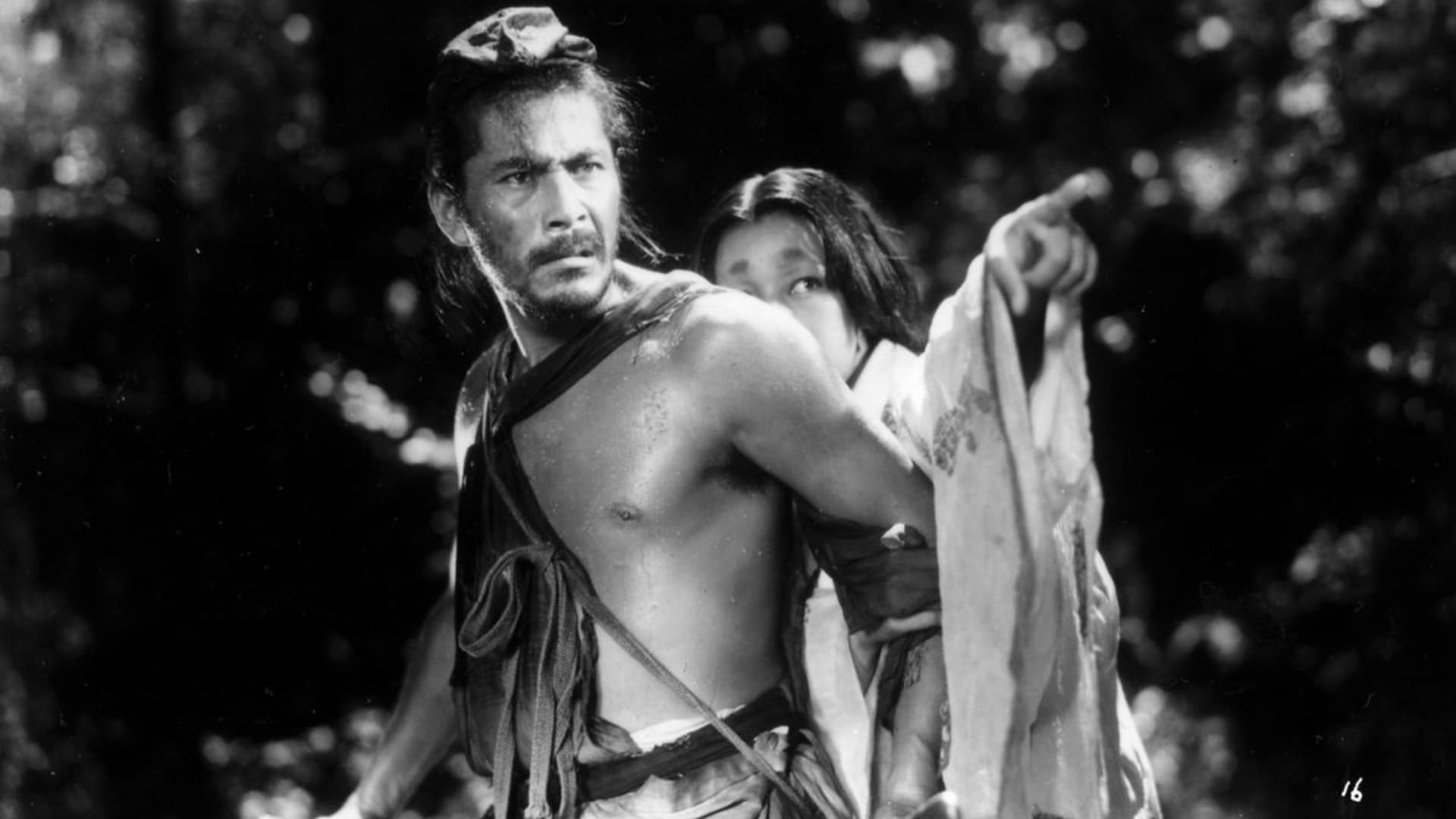

Rashomon
The husband, the wife… or the bandit?
1950 • 1h 28min • ★ 8.062/10 • Japan
Directed by: Akira Kurosawa
Cast: Toshirō Mifune, Machiko Kyō, Takashi Shimura, Masayuki Mori, Minoru Chiaki
Four people recount different versions of the story of a man's murder and the rape of his wife.
“Rashomon” is a Japanese period drama film released in 1950, directed by Akira Kurosawa. The film is based on two short stories by Ryunosuke Akutagawa and is known for its innovative narrative structure and exploration of truth and perception.
Set in feudal Japan, “Rashomon” revolves around a rape and murder that occurred in a forest. The film presents the events from the perspectives of four different characters: the bandit, the samurai, the samurai’s wife, and a woodcutter who witnessed the incident.
Each account of the story differs, raising questions about the nature of truth and the subjectivity of human perception.
Through its multiple viewpoints, “Rashomon” explores the elusive nature of truth and the complexities of human behavior.
The film challenges the
“Rashomon” received critical acclaim both in Japan and internationally and played a significant role in introducing Japanese cinema to a global audience.
It won several awards, including the Golden Lion at the Venice Film Festival, and is often regarded as one of the greatest films ever made.
The film’s groundbreaking narrative structure, characterized by its use of flashbacks and conflicting accounts, has had a lasting impact on filmmaking. It popularized the “Rashomon effect,” a term used to describe contradictory interpretations of the same event.
In addition to its narrative innovation, “Rashomon” is admired for its stunning visual composition and atmospheric cinematography. Kurosawa’s meticulous direction and the performances of the cast, including Toshiro Mifune as the bandit, add depth and nuance to the film.
“Rashomon” is a thought-provoking exploration of truth, perception, and the complexity of the human condition. It raises profound questions about the nature of reality and the fallibility of human memory and continues to be celebrated as a masterpiece of world cinema.
- Toshir Mifune, Machiko Ky, Masayuki Mori (Actors)
- Akira Kurosawa (Director) - Akira Kurosawa (Writer)
- English (Subtitle)
- Audience Rating: Unrated (Not Rated)
14. The Salesman (2016)
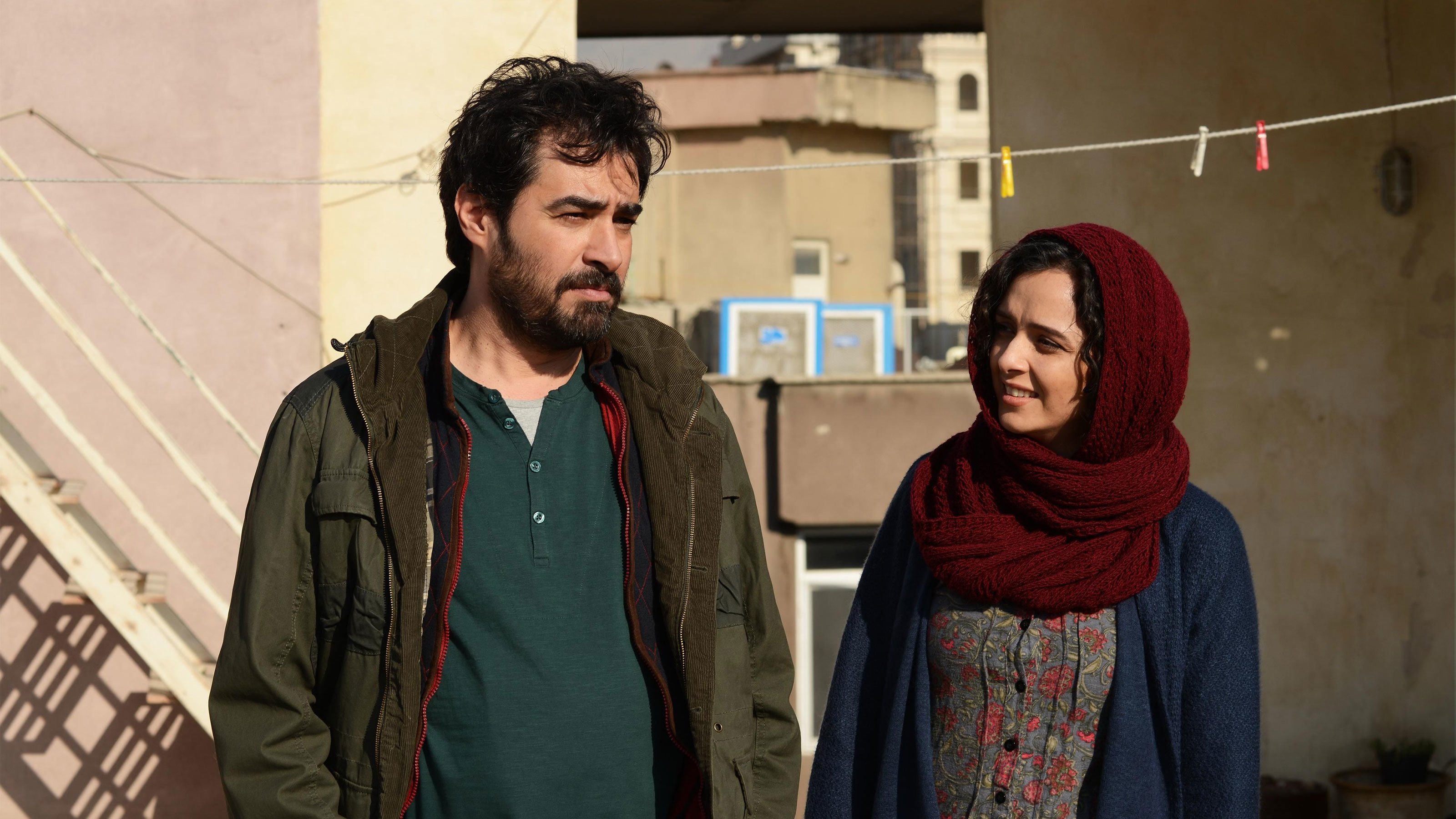
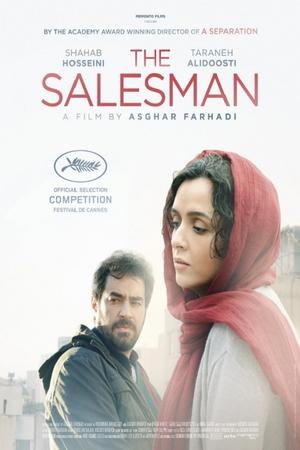
The Salesman
2016 • 2h 5min • ★ 7.24/10 • Iran
Directed by: Asghar Farhadi
Cast: Shahab Hosseini, Taraneh Alidoosti, Babak Karimi, Mina Sadati, Mehdi Koushki
Forced out of their apartment due to dangerous works on a neighboring building, Emad and Rana move into a new flat in the center of Tehran. An incident linked to the previous tenant will dramatically change the young couple’s life.
“The Salesman” is a drama film released in 2016, written and directed by Iranian filmmaker Asghar Farhadi. The film is also known by its original title “Forushande” in Persian. It won the Academy Award for Best Foreign Language Film in 2017.
“The Salesman” tells the story of Emad and Rana, a married couple who are both actors in a local theater production of Arthur Miller’s play “Death of a Salesman” in Tehran, Iran.
When their apartment becomes uninhabitable due to structural damage, they move into a new apartment provided by a fellow cast member. However, an incident occurs that dramatically affects their lives and relationship.
The film explores themes of morality, revenge, and the consequences of one’s actions. It delves into the complexities of human relationships, pride, and the ways in which past traumas can shape individuals’ behavior and decisions.
Asghar Farhadi’s direction brings a naturalistic and emotionally charged approach to the storytelling. The film tackles social issues and cultural nuances, offering a nuanced portrayal of Iranian society and the struggles faced by its characters.
“The Salesman” features compelling performances, particularly by Shahab Hosseini as Emad and Taraneh Alidoosti as Rana. Their portrayals capture the emotional turmoil and the gradual unraveling of their characters’ lives.
The film received critical acclaim for its thought-provoking narrative, strong performances, and Farhadi’s ability to create tension and suspense. It explores complex moral dilemmas and challenges the audience’s perceptions of right and wrong.
“The Salesman” stands as a testament to Asghar Farhadi’s storytelling prowess and his ability to craft gripping dramas that resonate with audiences worldwide. It exemplifies his commitment to exploring universal themes while rooted in the cultural context of his native Iran.
Please note that “The Salesman” is in Persian with English subtitles and deals with mature themes and sensitive subject matter.
No products found.
15. All About My Mother (1999)
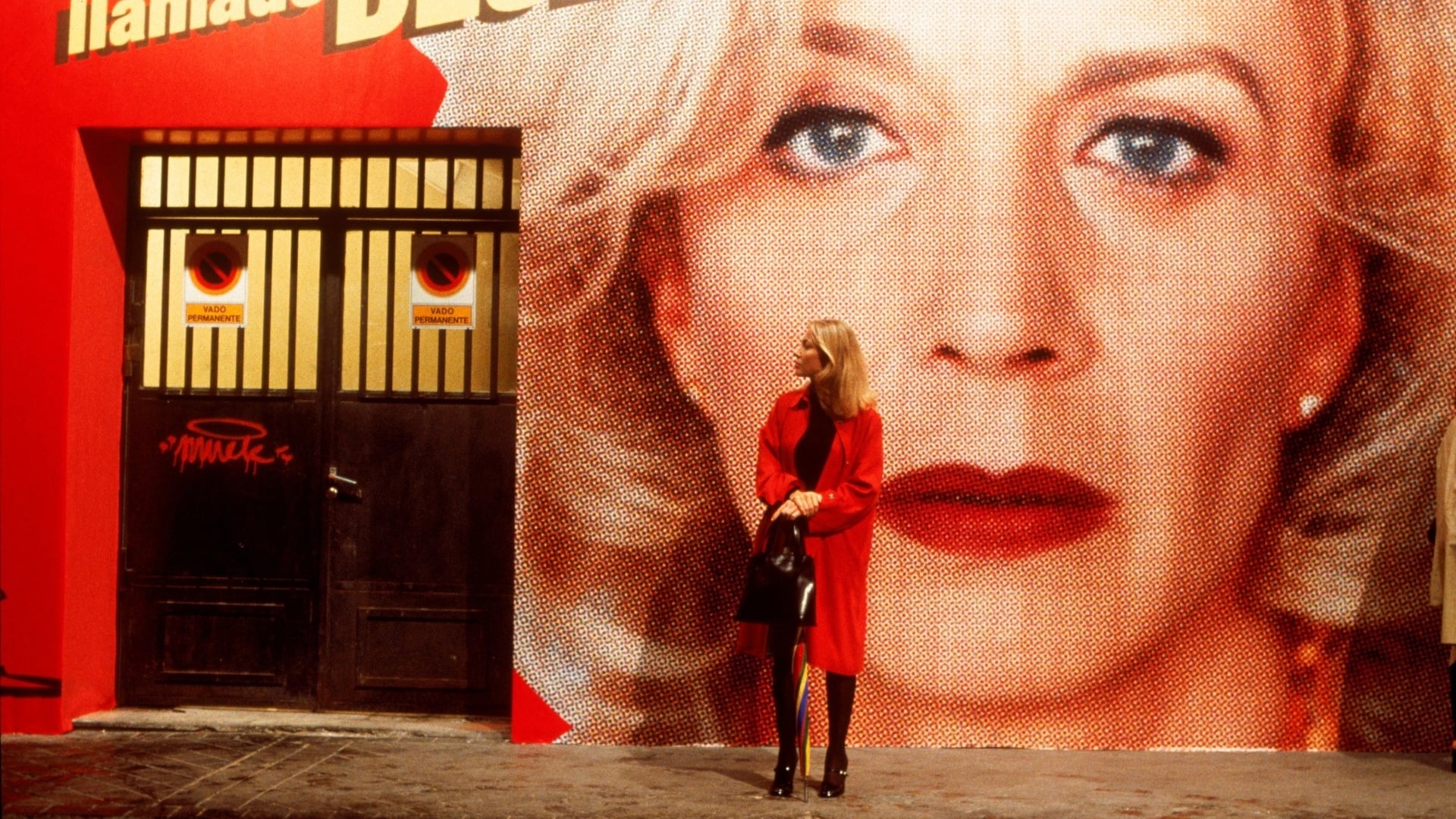
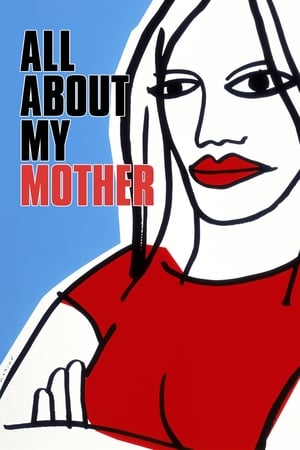
All About My Mother
Part of every woman is a mother/actress/saint/sinner. And part of every man is a woman.
1999 • 1h 41min • ★ 7.6/10 • Spain
Directed by: Pedro Almodóvar
Cast: Cecilia Roth, Marisa Paredes, Candela Peña, Antonia San Juan, Penélope Cruz
Following the tragic death of her teenage son, Manuela travels from Madrid to Barcelona in an attempt to contact the long-estranged father the boy never knew. She reunites with an old friend, an outspoken transgender sex worker, and befriends a troubled actress and a pregnant, HIV-positive nun.
“All About My Mother” is a Spanish drama film released in 1999, written and directed by Pedro Almodóvar. The movie tells the story of Manuela, a single mother who tragically loses her teenage son, Esteban, in a car accident.
Devastated by the loss, Manuela embarks on a journey to Barcelona to find her son’s father and fulfill a promise she made to him.
In Barcelona, Manuela becomes involved with a group of women, each facing their own personal struggles. These include Huma Rojo (played by Marisa Paredes), a famous actress; Agrado (played by Antonia San Juan), a transgender sex worker; and Rosa (played by Penélope Cruz), a young nun.
Through their interactions, the film explores themes of identity, motherhood, friendship, and the transformative power of compassion.
“All About My Mother” is known for its richly developed characters, vibrant storytelling, and Almodóvar’s signature mix of drama, comedy, and melodrama. The film celebrates women and their resilience, offering a compassionate and nuanced portrayal of their lives and experiences.
The movie received critical acclaim and was a success both domestically and internationally. It won numerous awards, including the Academy Award for Best Foreign Language Film, and is considered one of Pedro Almodóvar’s finest works.
With its complex characters, heartfelt performances, and themes of love, loss, and acceptance, “All About My Mother” stands as a powerful and emotionally resonant film.
It showcases Almodóvar’s masterful storytelling and his ability to explore the complexities of human relationships with depth, sensitivity, and a touch of whimsy.
- Amazon Prime Video (Video on Demand)
- Cecilia Roth, Marisa Paredes, Candela Pena (Actors)
- Pedro Almodóvar (Director) - Pedro Almodóvar (Writer) - Claude Berri (Producer)
- English (Playback Language)
- English (Subtitle)
16. Son of Saul (2015)
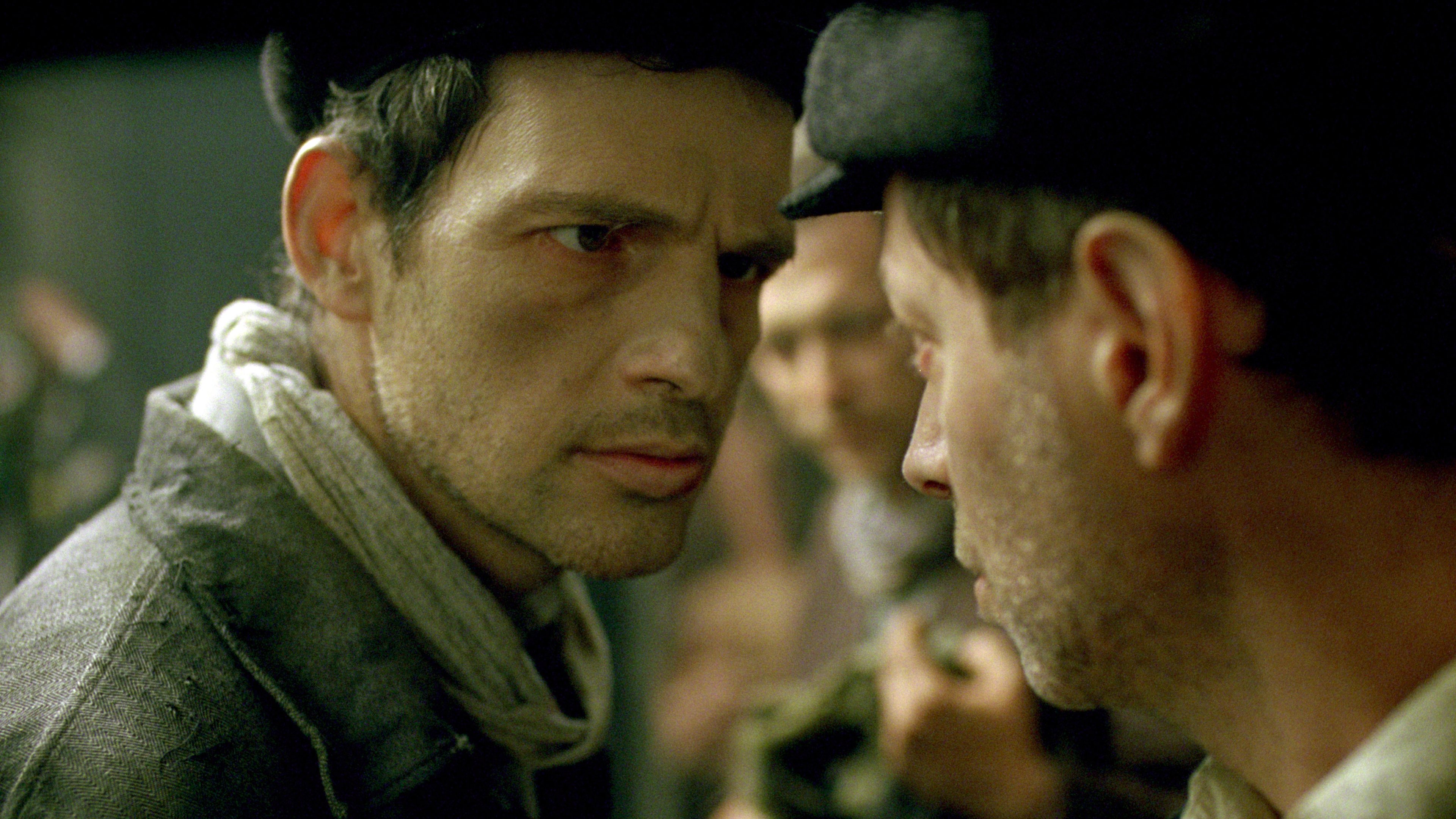
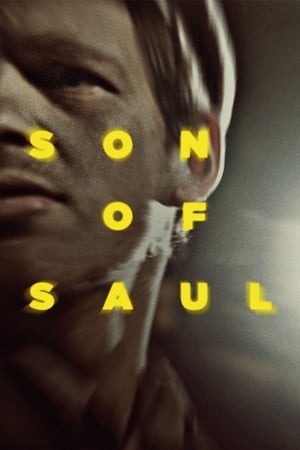
Son of Saul
2015 • 1h 47min • ★ 7.126/10 • France
Directed by: László Nemes
Cast: Géza Röhrig, Levente Molnár, Urs Rechn, Todd Charmont, Jerzy Walczak
In the horror of 1944 Auschwitz, a prisoner forced to burn the corpses of his own people finds moral survival trying to save from the flames the body of a boy he takes for his son, seeking to give him a proper jewish burial.
“Son of Saul” is a 2015 Hungarian war drama film directed by László Nemes. The movie takes place during World War II and follows the harrowing story of Saul Ausländer, played by Géza Röhrig, a Hungarian-Jewish prisoner in Auschwitz concentration camp.
“Son of Saul” offers a unique perspective on the Holocaust, focusing on Saul’s experiences as a member of the Sonderkommando, a group of prisoners forced to assist in the extermination process.
Amidst the atrocities of the camp, Saul becomes fixated on giving a proper burial to a young boy he believes to be his son.
The film is shot in an immersive and claustrophobic style, using a narrow depth of field to keep the viewer tightly focused on Saul and his immediate surroundings.
This approach emphasizes the relentless and chaotic environment of the concentration camp while capturing the moral dilemmas and personal struggles faced by the characters.
“Son of Saul” received critical acclaim and won numerous awards, including the Grand Prix at the Cannes Film Festival and the Academy Award for Best Foreign Language Film.
It is recognized for its powerful performances, haunting cinematography, and its unflinching portrayal of the Holocaust.
The film’s raw and unrelenting depiction of the Holocaust serves as a poignant reminder of the atrocities committed during that dark period of history.
“Son of Saul” is a deeply affecting and thought-provoking film that challenges viewers to confront the horrors of the past and the resilience of the human spirit in the face of unimaginable circumstances.
No products found.
17. The Discreet Charm of the Bourgeoisie (1972)
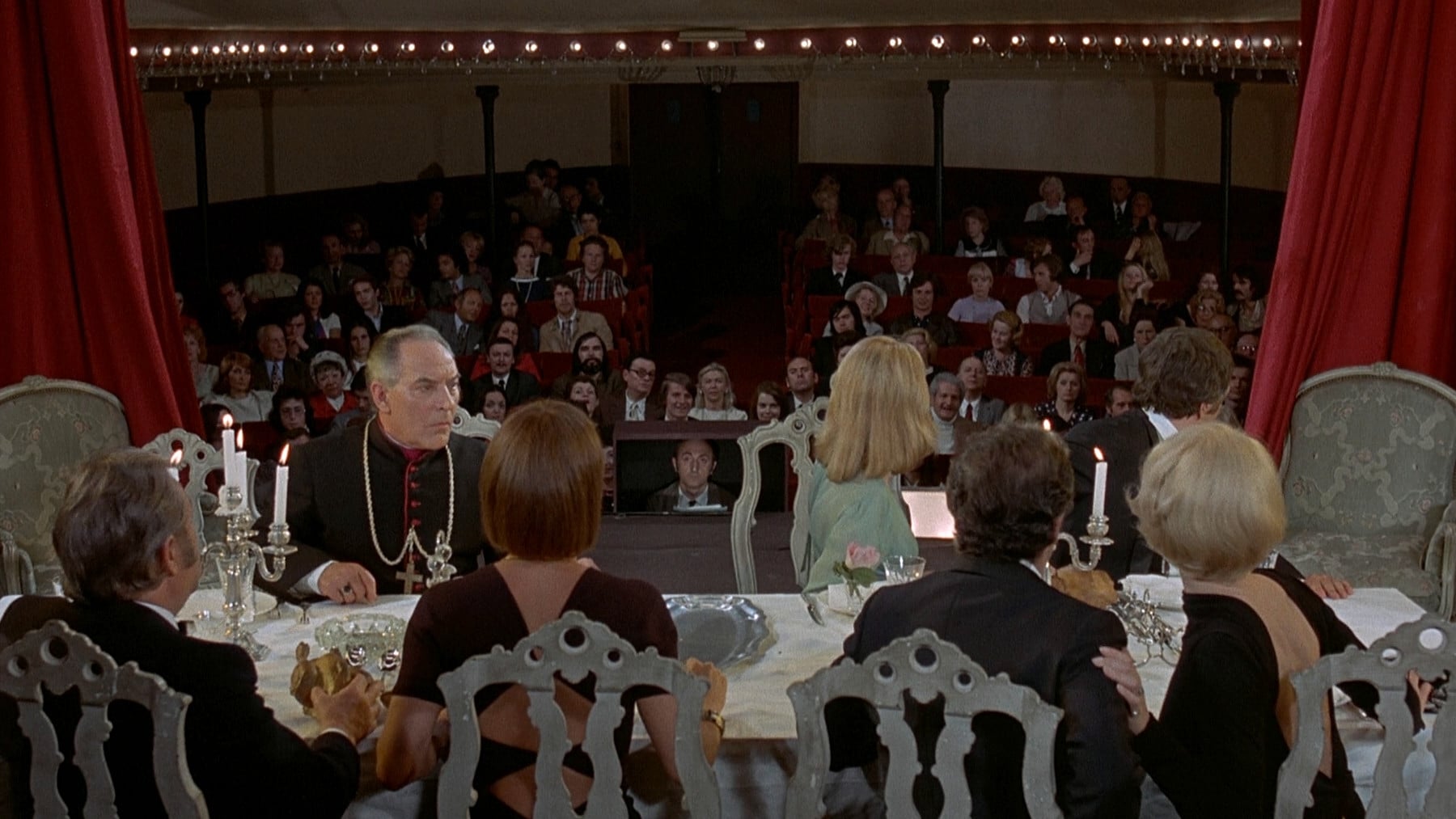
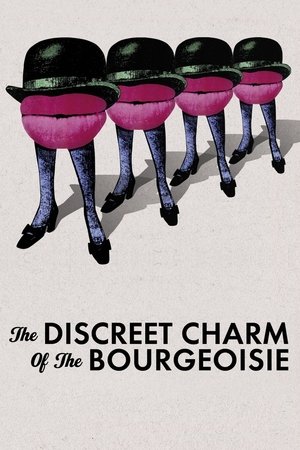
The Discreet Charm of the Bourgeoisie
1972 • 1h 41min • ★ 7.481/10 • France
Directed by: Luis Buñuel
Cast: Fernando Rey, Delphine Seyrig, Paul Frankeur, Stéphane Audran, Bulle Ogier
In Luis Buñuel’s deliciously satiric masterpiece, an upper-class sextet sits down to dinner but never eats, their attempts continually thwarted by a vaudevillian mixture of events both actual and imagined.
“The Discreet Charm of the Bourgeoisie” (French: “Le Charme discret de la bourgeoisie”) is a surrealist comedy-drama film directed by Luis Buñuel and released in 1972. The film is a satirical exploration of the manners, hypocrisies, and social conventions of the bourgeoisie.
“The Discreet Charm of the Bourgeoisie” follows a group of upper-middle-class characters as they attempt to have a meal together, but their plans are continuously interrupted by a series of absurd and surreal events.
Buñuel uses these disruptions to expose the superficiality and absurdity of the bourgeoisie’s lifestyle, questioning their values and highlighting the disconnection between appearance and reality.
The film employs dream-like sequences, unexpected occurrences, and narrative disruptions to create a sense of surrealism and challenge traditional storytelling conventions.
It combines social commentary, humor, and elements of fantasy to critique the bourgeoisie’s complacency and their inability to confront deeper truths.
“The Discreet Charm of the Bourgeoisie” received critical acclaim for its innovative narrative structure, biting wit, and its exploration of societal norms.
The film won the Academy Award for Best Foreign Language Film and solidified Buñuel’s reputation as a master of surrealism.
Buñuel’s distinctive directorial style, characterized by his subversive and provocative approach to filmmaking, shines through in “The Discreet Charm of the Bourgeoisie.”
The film’s clever satire and its portrayal of the bourgeoisie’s self-delusion and pretensions have made it a significant work in the realm of surreal cinema.
“The Discreet Charm of the Bourgeoisie” remains a thought-provoking and influential film, challenging societal norms and inviting viewers to question their own assumptions about class, social conventions, and the nature of reality. Its exploration of the human condition and the absurdities of everyday life continue to resonate with audiences.
- Amazon Prime Video (Video on Demand)
- Fernando Rey, Delphine Seyrig, Stéphane Audran (Actors)
- Luis Buñuel (Director) - Luis Buñuel (Writer) - Serge Silberman (Producer)
- (Playback Language)
- Audience Rating: PG (Parental Guidance Suggested)
18. Through a Glass Darkly (1961)
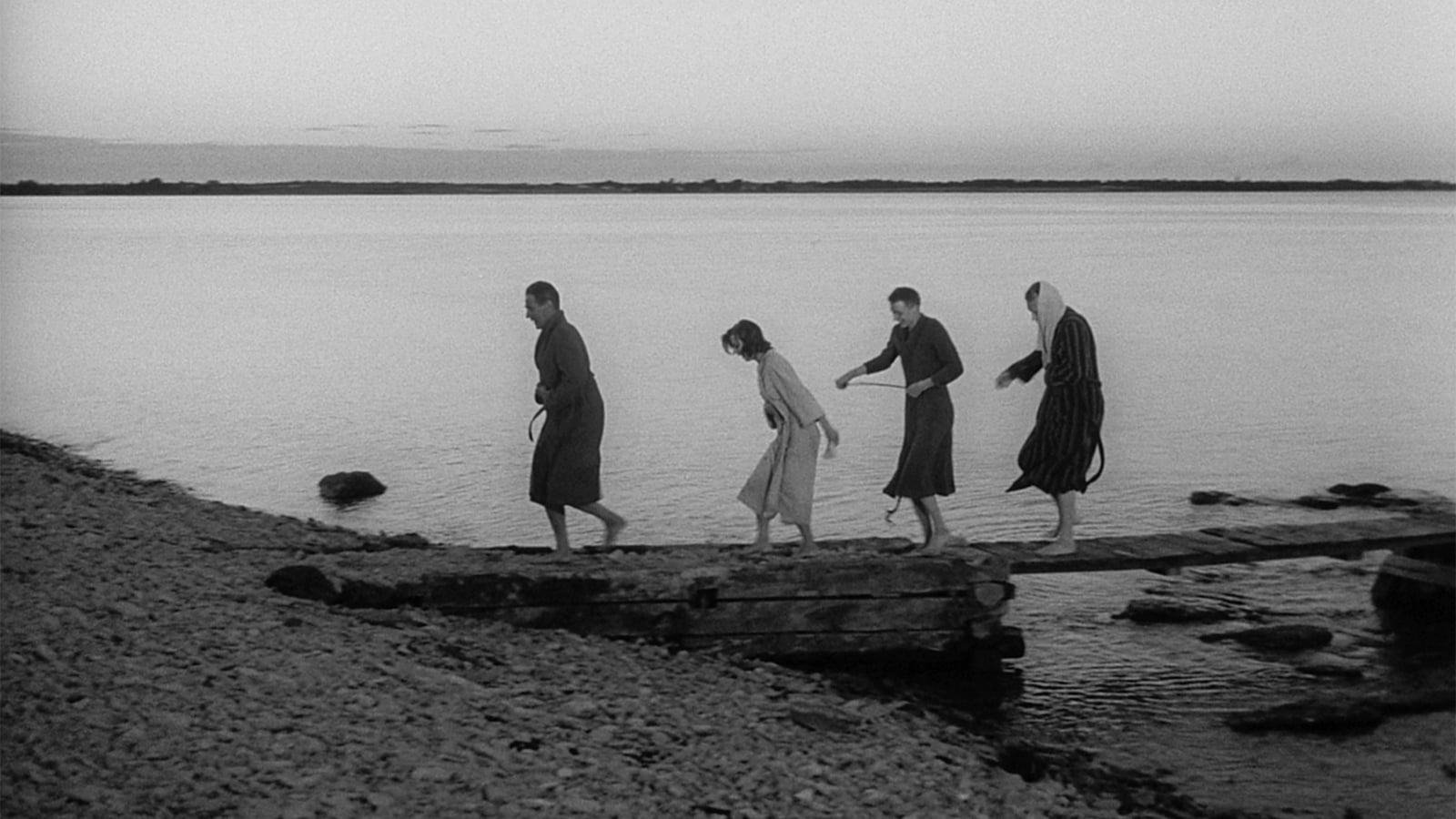
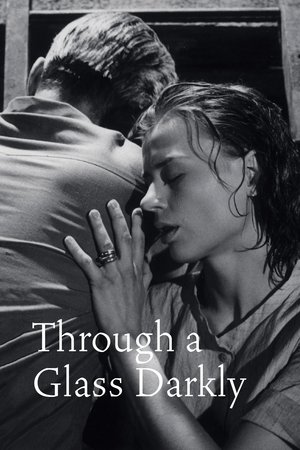
Through a Glass Darkly
1961 • 1h 31min • ★ 7.764/10 • Sweden
Directed by: Ingmar Bergman
Cast: Harriet Andersson, Gunnar Björnstrand, Max von Sydow, Lars Passgård
Karin hopes to recover from her recent stay at a mental hospital by spending the summer at her family's cottage on a tiny island. Her husband, Martin, cares for her but is frustrated by her physical withdrawal. Her younger brother, Minus, is confused by Karin's vulnerability and his own budding sexuality. Their father, David, cannot overcome his haughty remoteness. Beset by visions, Karin descends further into madness.
“Through a Glass Darkly” is a 1961 Swedish drama film written and directed by Ingmar Bergman. It is the first installment in Bergman’s “Faith Trilogy,” followed by “Winter Light” and “The Silence.”
The film explores themes of isolation, mental illness, and the search for meaning in a seemingly indifferent world.
Set on a remote island, “Through a Glass Darkly” revolves around a family consisting of Karin, her husband Martin, her father David, and her younger brother Minus.
Karin, played by Harriet Andersson, has recently been released from a mental institution and is struggling with her fragile mental state.
The story unfolds over the course of 24 hours as the family members grapple with their own emotional turmoil and attempt to connect with one another.
The film delves into the inner lives of the characters, examining their fears, desires, and existential crises. It explores the boundaries between reality and fantasy, with Karin’s perception of the world being distorted by her illness.
Bergman’s screenplay and direction create an atmosphere of tension and introspection, inviting viewers to contemplate the human condition and the fragile nature of our perceptions.
“Through a Glass Darkly” is characterized by its intimate and raw performances, with Harriet Andersson delivering a powerful portrayal of Karin’s emotional turmoil.
The film also features strong performances from Gunnar Björnstrand, Max von Sydow, and Lars Passgård.
The film received critical acclaim and won the Academy Award for Best Foreign Language Film in 1962. It is regarded as one of Bergman’s finest works and is often cited as a seminal example of his exploration of existential themes and the human psyche.
“Through a Glass Darkly” stands as a thought-provoking examination of human relationships and the fragility of the human mind.
Its introspective nature, stunning cinematography, and powerful performances make it a significant entry in Bergman’s filmography and a testament to his ability to portray the complexities of the human condition.
No products found.
19. A Separation (2011)
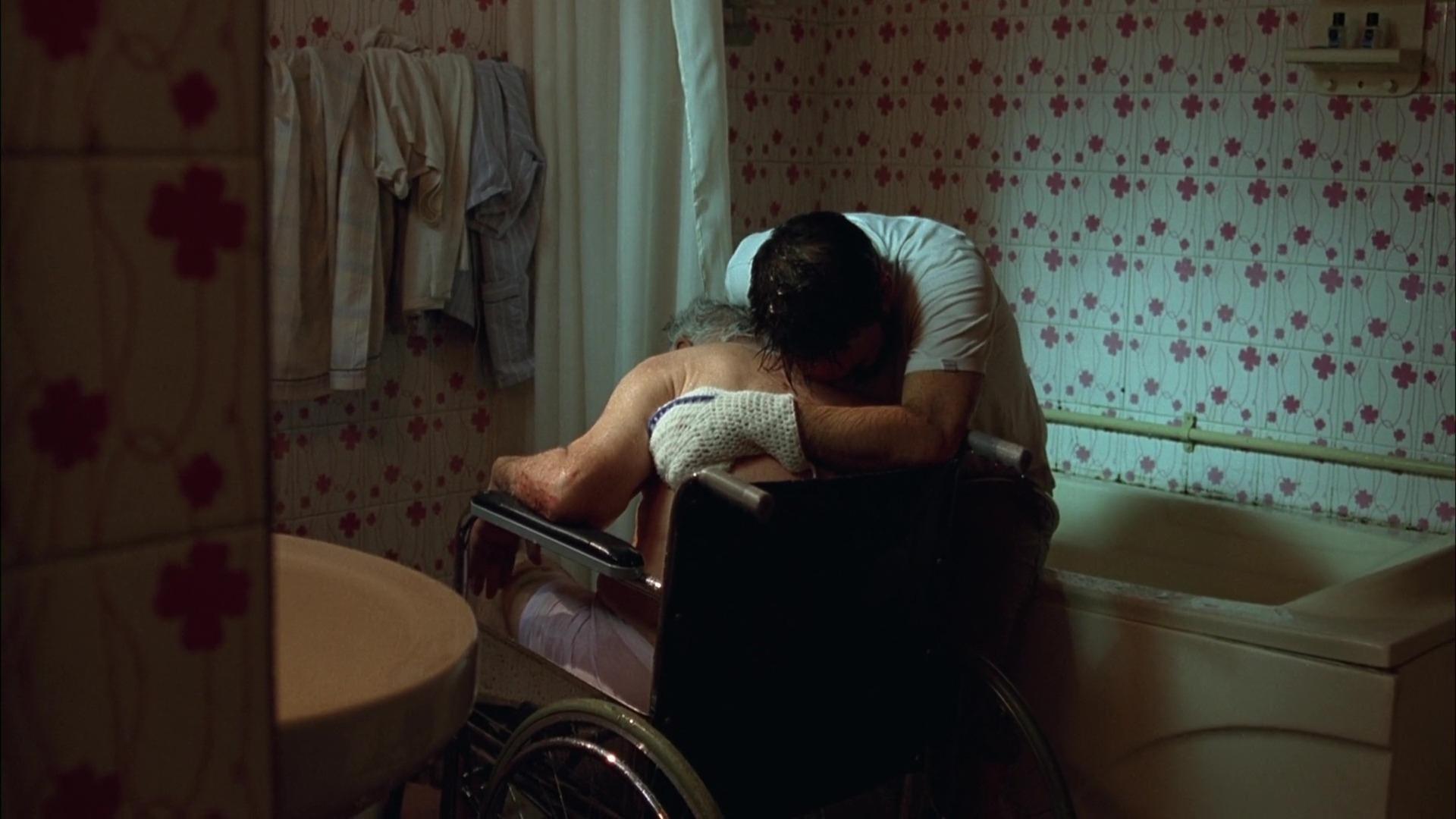
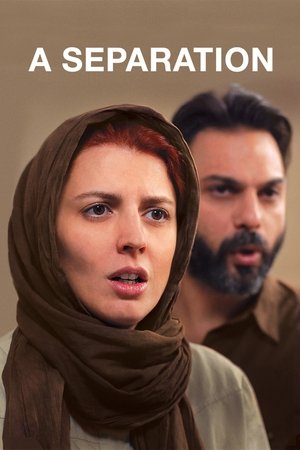
A Separation
Ugly truth, sweet lies.
2011 • 2h 3min • ★ 7.887/10 • France
Directed by: Asghar Farhadi
Cast: Leila Hatami, Payman Maadi, Sareh Bayat, Sarina Farhadi, Shahab Hosseini
A married couple are faced with a difficult decision - to improve the life of their child by moving to another country or to stay in Iran and look after a deteriorating parent who has Alzheimer's disease.
“A Separation” (original title: “Jodaeiye Nader az Simin”) is a 2011 Iranian drama film written and directed by Asghar Farhadi. The film explores complex family dynamics and societal issues through the story of a couple seeking a divorce and the consequences that unfold.
“A Separation” revolves around Nader (played by Peyman Moaadi) and Simin (played by Leila Hatami), a married couple in Tehran who find themselves at odds over their future.
Simin wants to leave the country in search of better opportunities for their daughter, but Nader is determined to stay and care for his elderly father who suffers from Alzheimer’s disease.
As their dispute intensifies, they decide to separate, leading to a series of events that affect not only their lives but also those around them.
The film delves into themes of morality, truth, and the complexities of human relationships. It explores the consequences of difficult choices and the ethical dilemmas faced by the characters as they navigate through a web of lies, misunderstandings, and personal conflicts.
“A Separation” is renowned for its powerful performances, nuanced storytelling, and realistic portrayal of everyday life in Iran. The film showcases the talents of its ensemble cast, who deliver deeply compelling performances that capture the complexities of their characters’ emotions and struggles.
The film received widespread critical acclaim and achieved international recognition. It won numerous awards, including the Academy Award for Best Foreign Language Film, making it the first Iranian film to receive such an honor.
The film’s success brought attention to Iranian cinema and solidified Asghar Farhadi as one of its prominent directors.
“A Separation” stands as a compelling and thought-provoking exploration of family dynamics, morality, and the consequences of one’s actions.
It presents a rich and layered story that resonates with audiences, regardless of cultural backgrounds, by offering a deeply human and emotionally resonant experience.
- Amazon Prime Video (Video on Demand)
- Peyman Moaadi, Shahab Hosseini, Sareh Bayat (Actors)
- Asghar Farhadi (Director) - Asghar Farhadi (Writer) - Asghar Farhadi (Producer)
- English, French (Playback Languages)
- English, French (Subtitles)
20. 8 1/2 (1963)
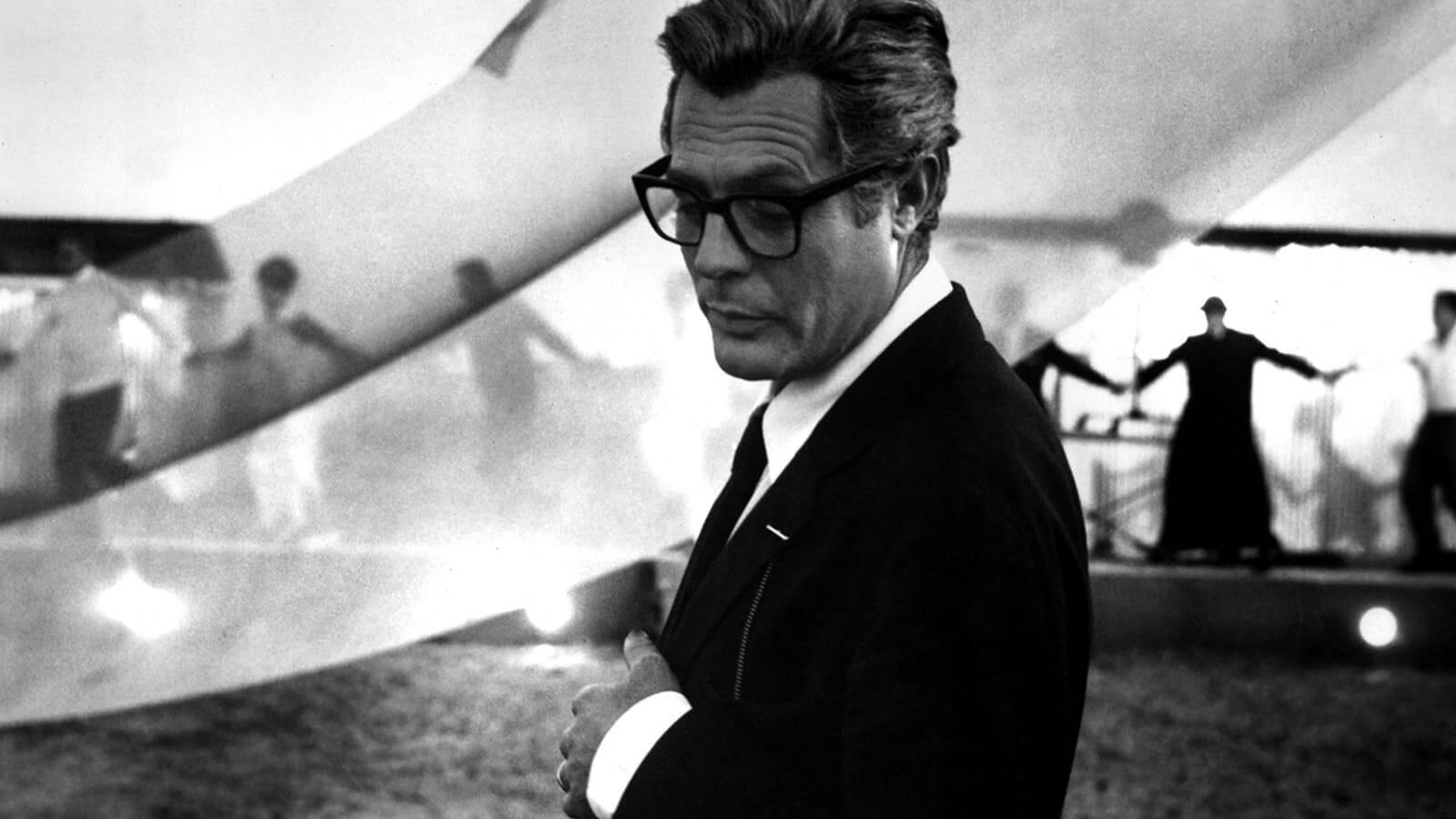
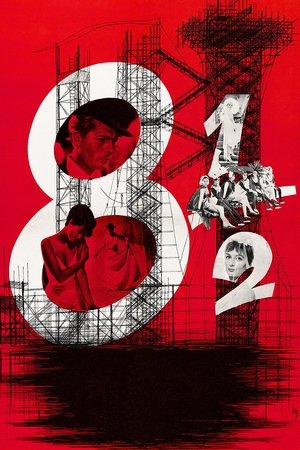
8½
A picture that goes beyond what men think about - because no man ever thought about it in quite this way!
1963 • 2h 19min • ★ 8.133/10 • Italy
Directed by: Federico Fellini
Cast: Marcello Mastroianni, Anouk Aimée, Sandra Milo, Claudia Cardinale, Rossella Falk
Guido Anselmi, a film director, finds himself creatively barren at the peak of his career. Urged by his doctors to rest, Anselmi heads for a luxurious resort, but a sorry group gathers—his producer, staff, actors, wife, mistress, and relatives—each one begging him to get on with the show. In retreat from their dependency, he fantasizes about past women and dreams of his childhood.
“8 1/2” is an Italian surrealist film released in 1963, directed by Federico Fellini. It is widely regarded as a masterpiece of cinema and a landmark in Fellini’s career. The film is a deeply personal and introspective work that blurs the boundaries between fantasy and reality.
“8 1/2” tells the story of Guido Anselmi, played by Marcello Mastroianni, a renowned film director who finds himself creatively and emotionally blocked while trying to make his next film.
As Guido struggles with the pressures of his work and his personal life, the film delves into his memories, dreams, and fantasies, creating a mosaic of scenes that blend together in a surreal and dreamlike narrative.
The film explores themes of artistic struggle, identity, and the complexities of human relationships. It offers a meditation on the nature of creativity and the challenges faced by artists in finding inspiration and reconciling their inner conflicts.
“8 1/2” is known for its innovative and visually striking cinematography, with Fellini employing a variety of techniques to blur the boundaries between reality and fantasy.
The film features elaborate set designs, dream sequences, and a unique blend of surrealism and realism, creating a rich and immersive cinematic experience.
The film received critical acclaim upon its release and has since become a highly influential work. It won two Academy Awards and continues to be celebrated for its artistic vision and its exploration of the human psyche.
Marcello Mastroianni delivers a captivating performance as Guido, bringing depth and vulnerability to the character.
“8 1/2” is considered a seminal work in the realm of art cinema, with its complex narrative structure and its exploration of the inner world of its protagonist.
It has inspired countless filmmakers and has left a lasting impact on the cinematic landscape, solidifying Fellini’s status as one of the greatest directors in film history.
No products found.


![The Bicycle Thieves [1948] [DVD]](https://m.media-amazon.com/images/I/51XZrI5owgL.jpg)

![The Secret in Their Eyes (2009) ( El secreto de sus ojos ) [ NON-USA FORMAT, PAL, Reg.2 Import - Spain ]](https://m.media-amazon.com/images/I/51yy7lBOPHL.jpg)




![Amarcord [DVD] [1973]](https://m.media-amazon.com/images/I/51uwdG-542L.jpg)



![Amour [DVD] [2012]](https://m.media-amazon.com/images/I/51ZWcb1D6QL.jpg)

![Fanny and Alexander (Theatrical & Television Version) (The Criterion Collecton) [DVD]](https://m.media-amazon.com/images/I/41-OSQO12ZL.jpg)





